NBA Finals MVPs: The Complete List of Winners
After leading the Warriors to the 2022 NBA title, Stephen Curry became the 33rd Finals MVP since the award was created in 1969. Here’s a look at every winner.
NBA Finals MVPs
Jerry West (1969)
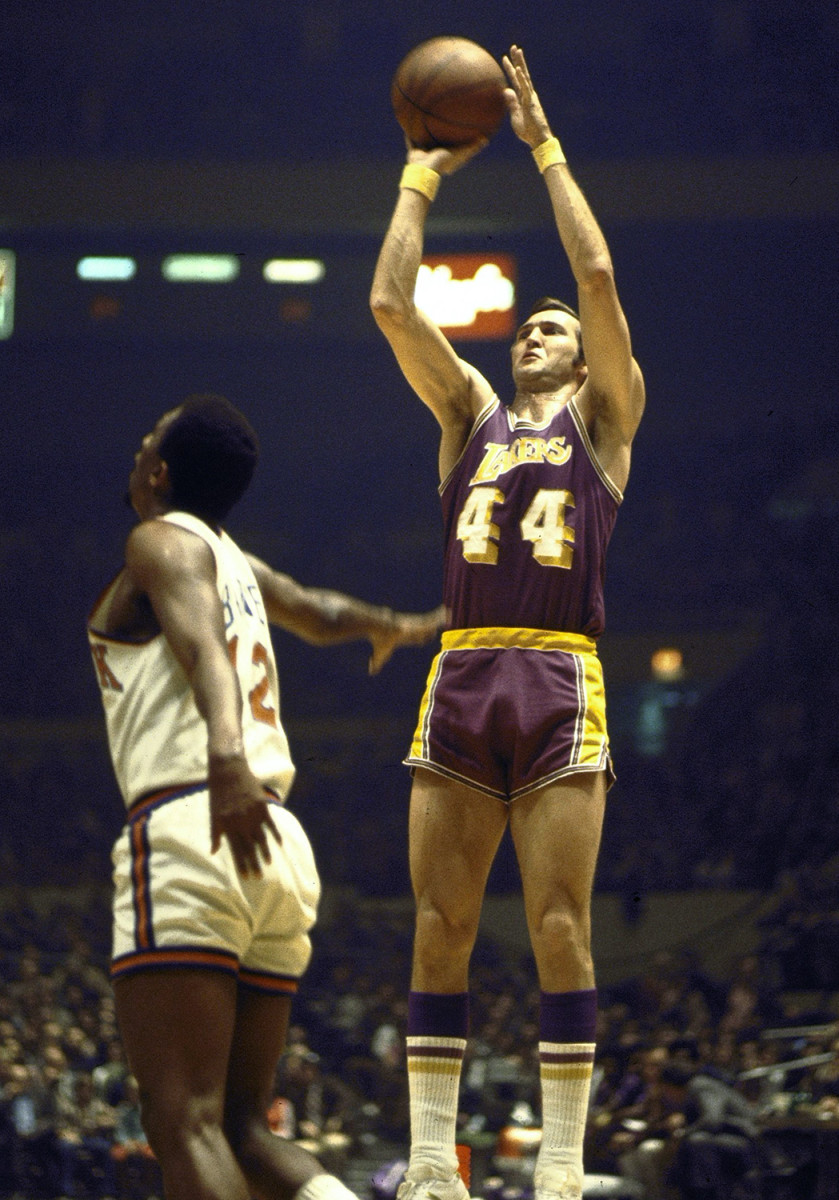
The first player to earn the title of NBA Finals MVP, West is also the only player to win the award while playing on the losing team. West averaged 37.9 points per game for the Lakers in their seven-game series loss to the Celtics in ’69—the final championship of the Bill Russell dynasty in Boston.
Willis Reed (1970, 1973)
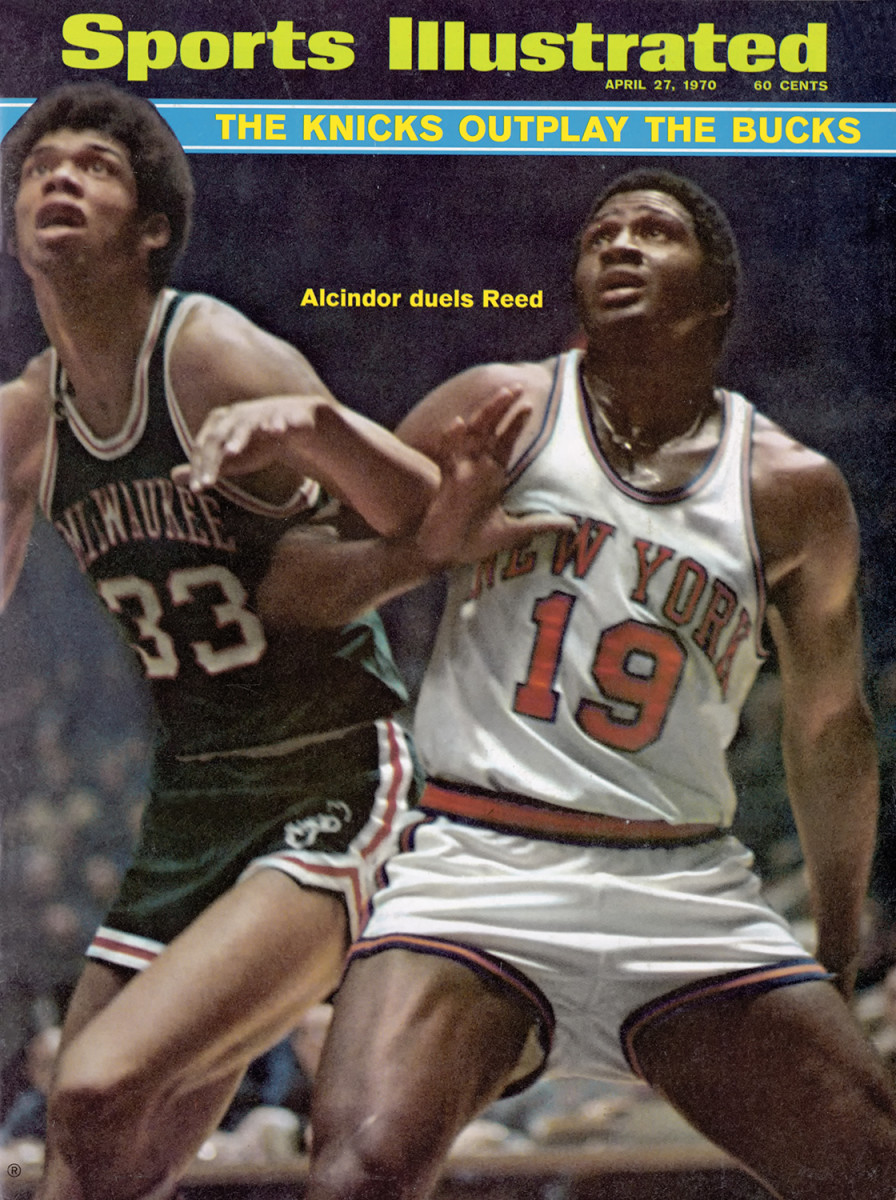
After tearing a thigh muscle in Game 5 of the 1970 Finals against the Lakers, Reed famously returned to the court for Game 7 and opened the scoring for the Knicks, who would go on to win the franchise’s first title. Reed then helped the Knicks to their second title in a rematch against the Lakers in ’73.
Kareem Abdul-Jabbar (1971, 1985)
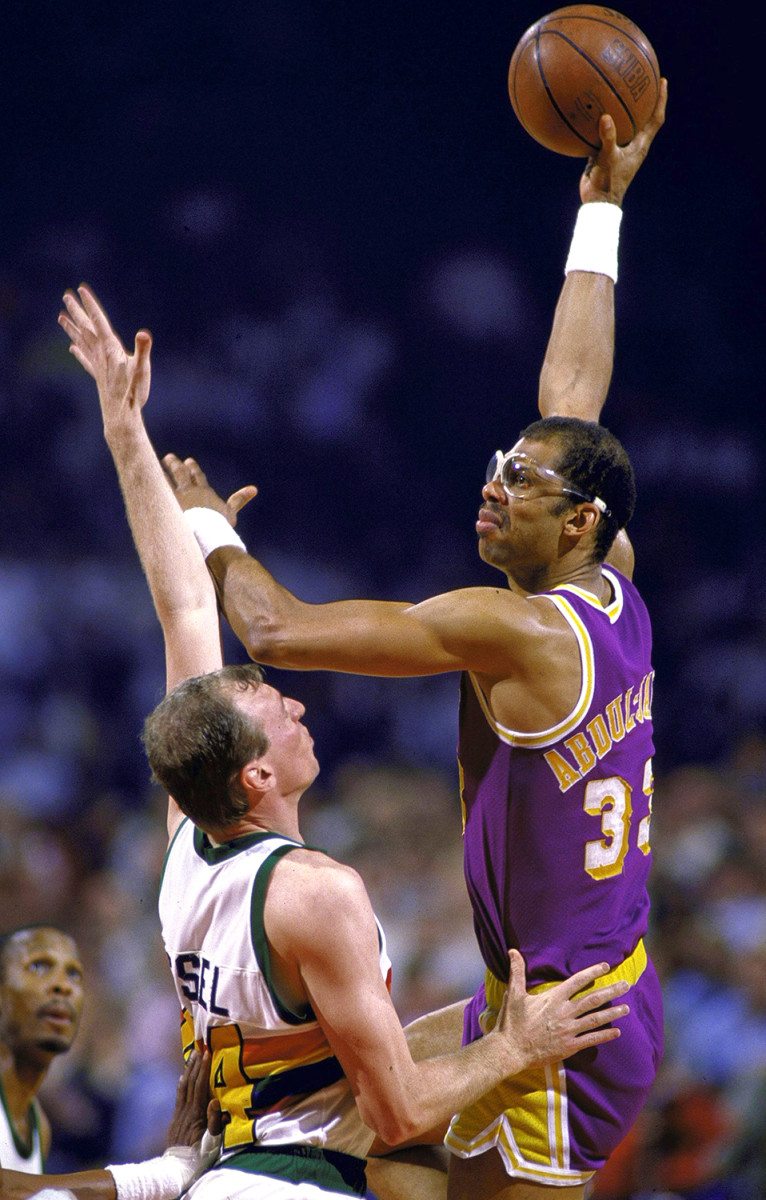
In his second NBA season, Abdul-Jabbar led the Bucks to a sweep of the Baltimore Bullets and won his first Finals MVP award. Fourteen years later, he became the oldest Finals MVP in NBA history, leading the Lakers to victory against the Celtics while averaging 25.7 points, 9.0 rebounds and 5.2 assists.
Wilt Chamberlain (1972)
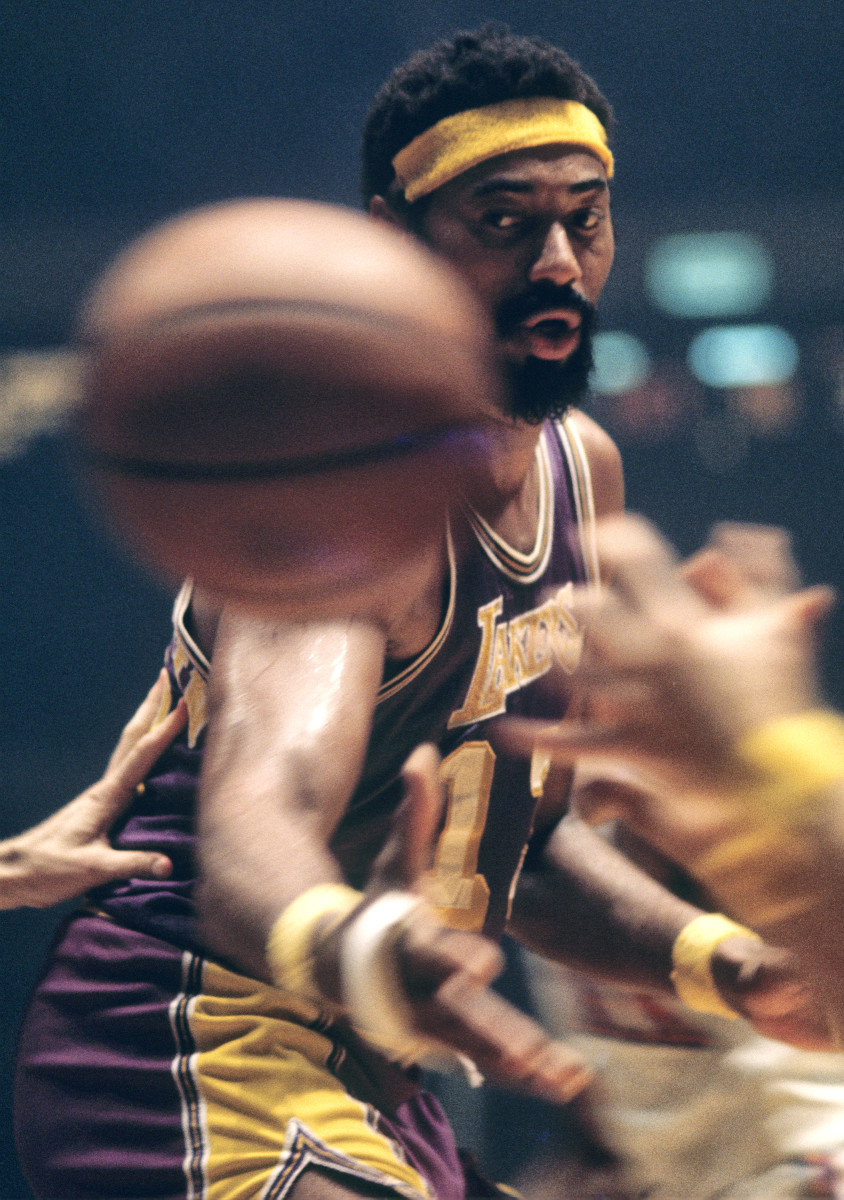
Chamberlain and the Lakers defeated the Knicks 4–1 in 1972 for the Lakers’ first title since the franchise relocated to Los Angeles from Minneapolis. Chamberlain averaged 19.4 points and 23.2 rebounds in the championship series.
John Havlicek (1974)
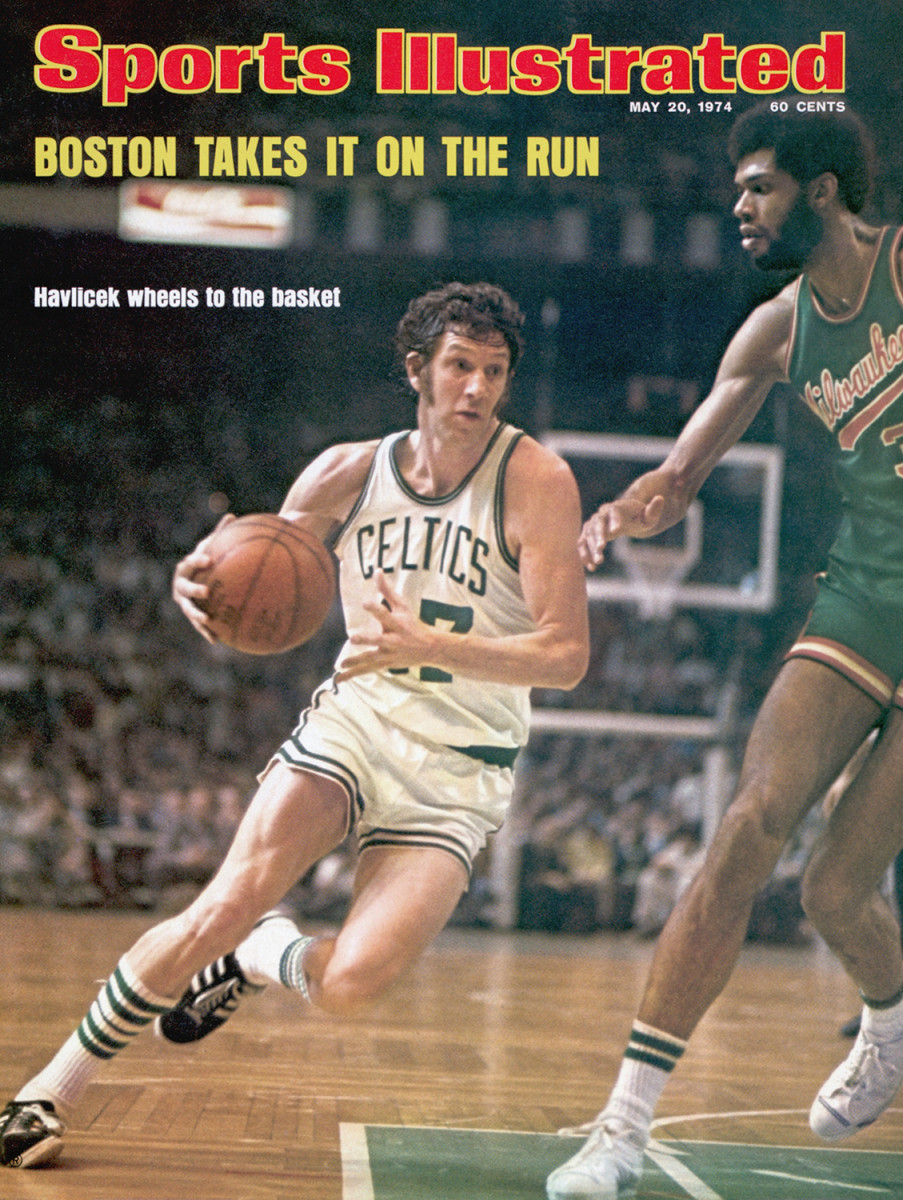
With a 36-point performance in Game 6, Havlicek led Boston to defeat Kareem Abdul-Jabbar and the Bucks for the Celtics’ first title in the post-Bill Russell era.
Rick Barry (1975)
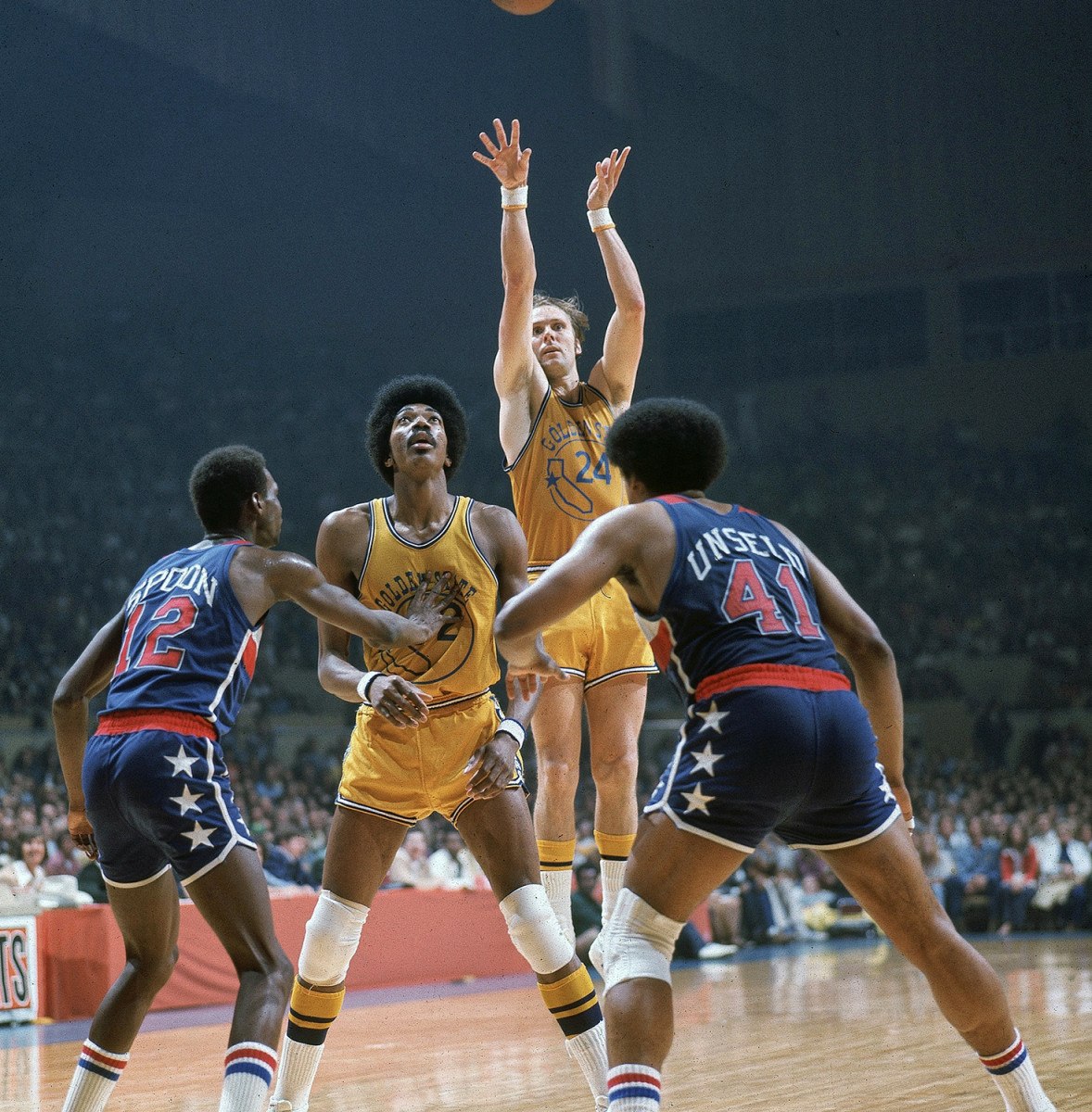
Though the Washington Bullets were heavily favored entering the 1975 Finals, Barry and the Warriors pulled off the sweep. Barry averaged 29.5 points per game in the series and posted a 93.8% free throw percentage, thanks to his underhand technique at the line.
Jo Jo White (1976)
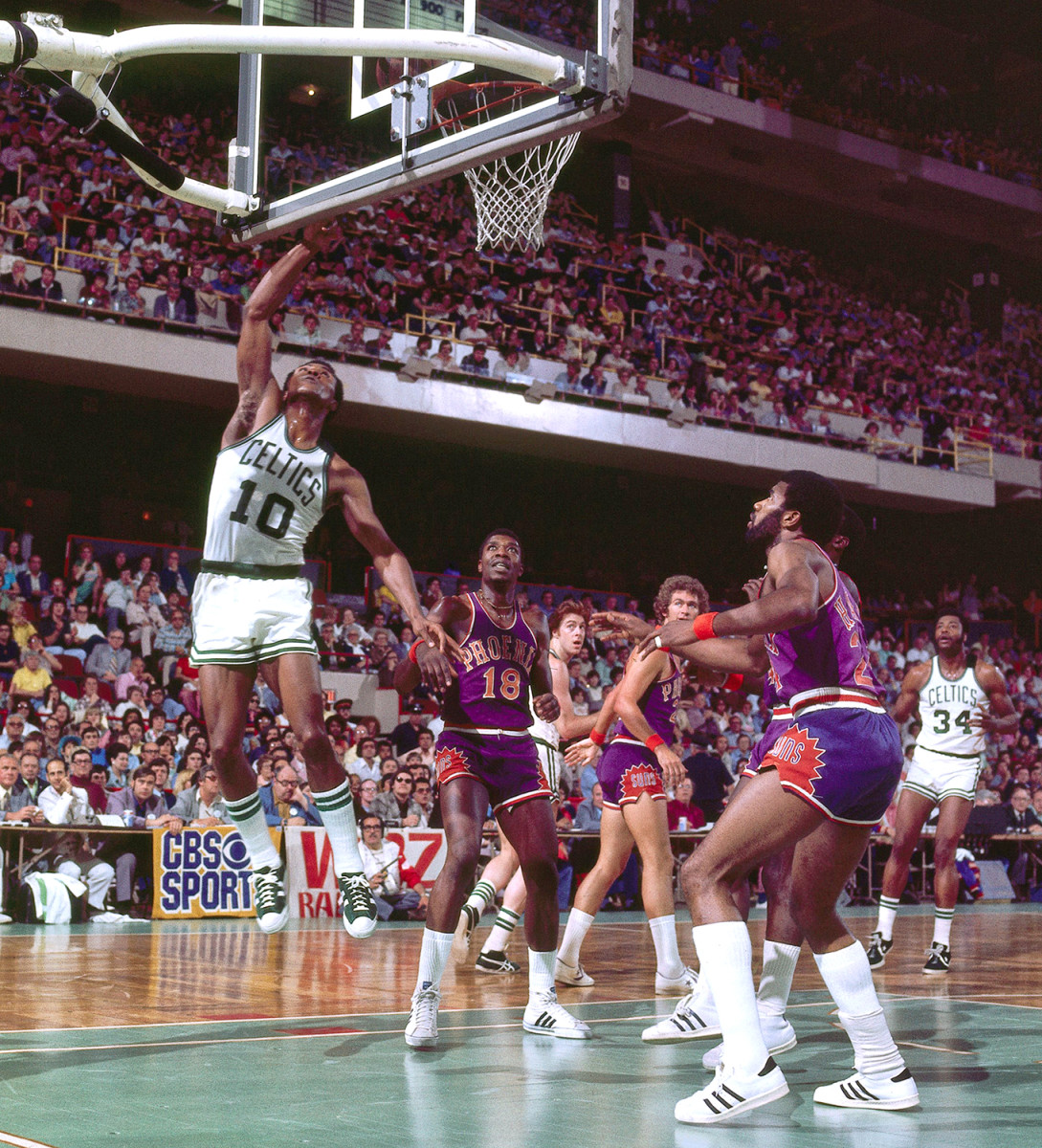
White scored 130 points in the six-game series against the Phoenix Suns, with 33 coming in the Celtics’ triple-overtime Game 5 victory.
Bill Walton (1977)
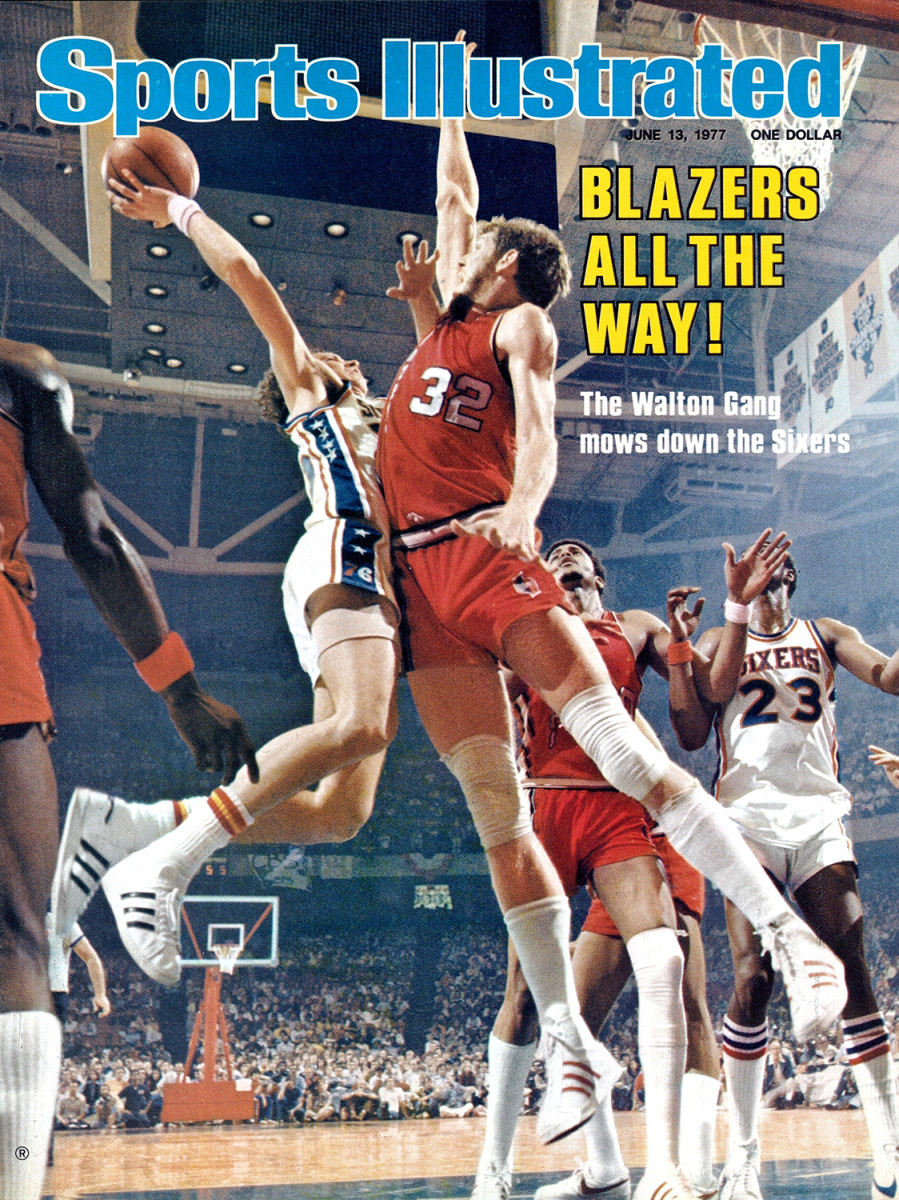
In Portland’s NBA playoff debut, Walton and the Trail Blazers rebounded from an 0–2 deficit against the 76ers with four straight wins. In the series-clinching Game 6, Walton put up a 20-point and 23-rebound performance.
Wes Unseld (1978)
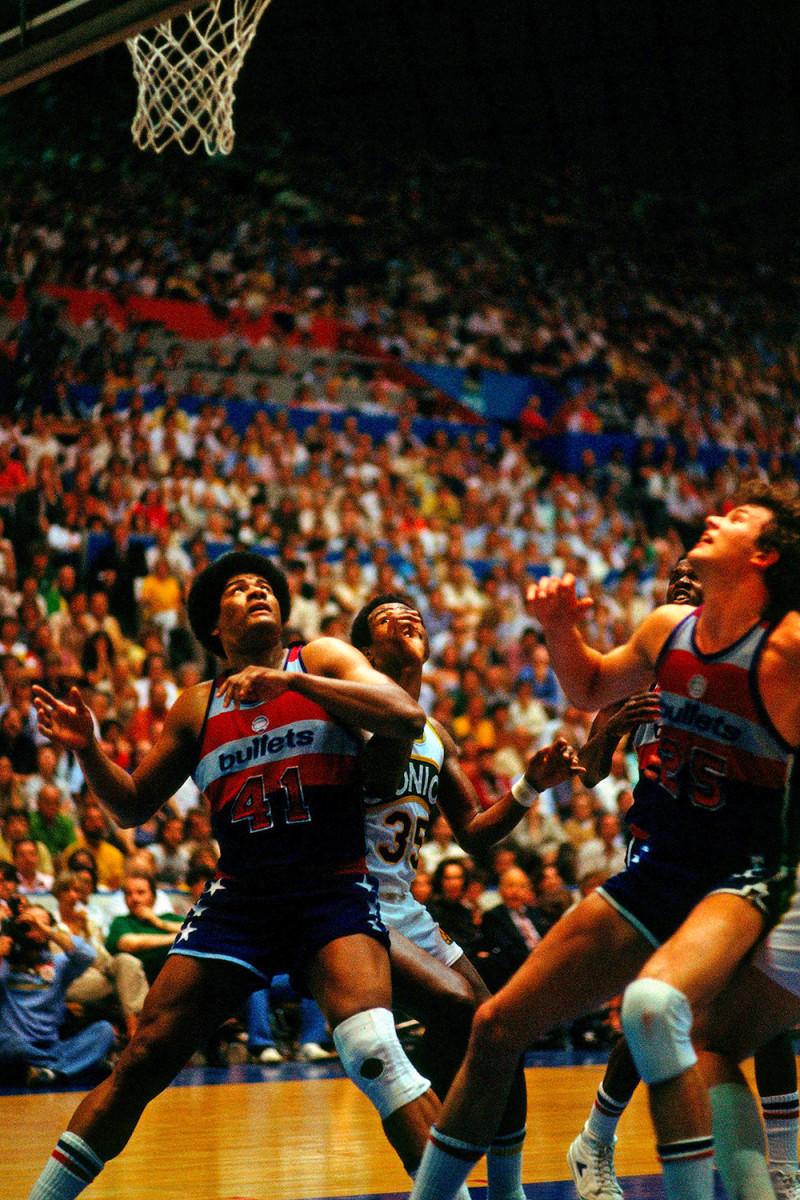
The Bullets’ defeat of the Seattle SuperSonics in the 1978 Finals marked the franchise’s first NBA title. Unseld had 15 points and 12 rebounds in Game 7, and his pair of clutch free throws in the final seconds of the game helped seal the Bullets’ victory.
Dennis Johnson (1979)
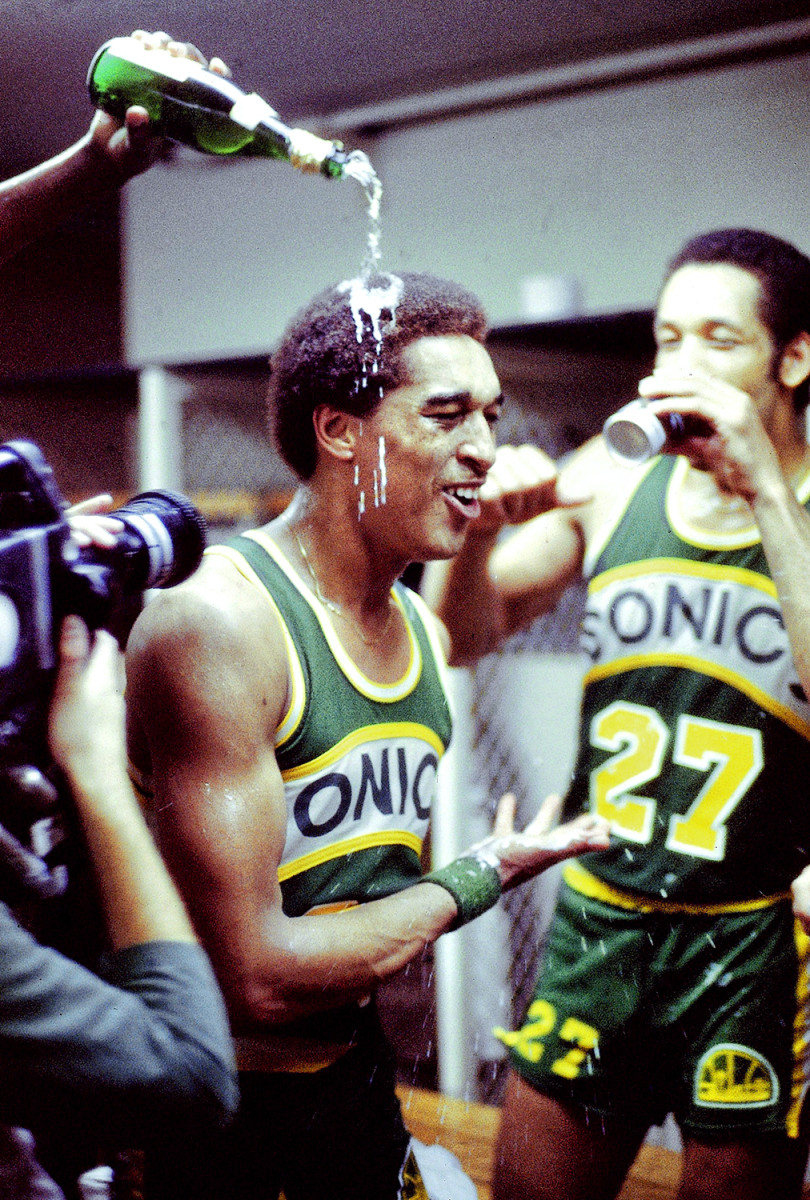
In a rematch of the 1978 Finals, Johnson led the SuperSonics to their only NBA championship in a 4-1 series win over the Washington Bullets. Averaging 22.3 points per game, Johnson made up for his Finals performance the previous season when he missed all 14 of his field goal attempts in Game 7.
Magic Johnson (1980, 1982, 1987)
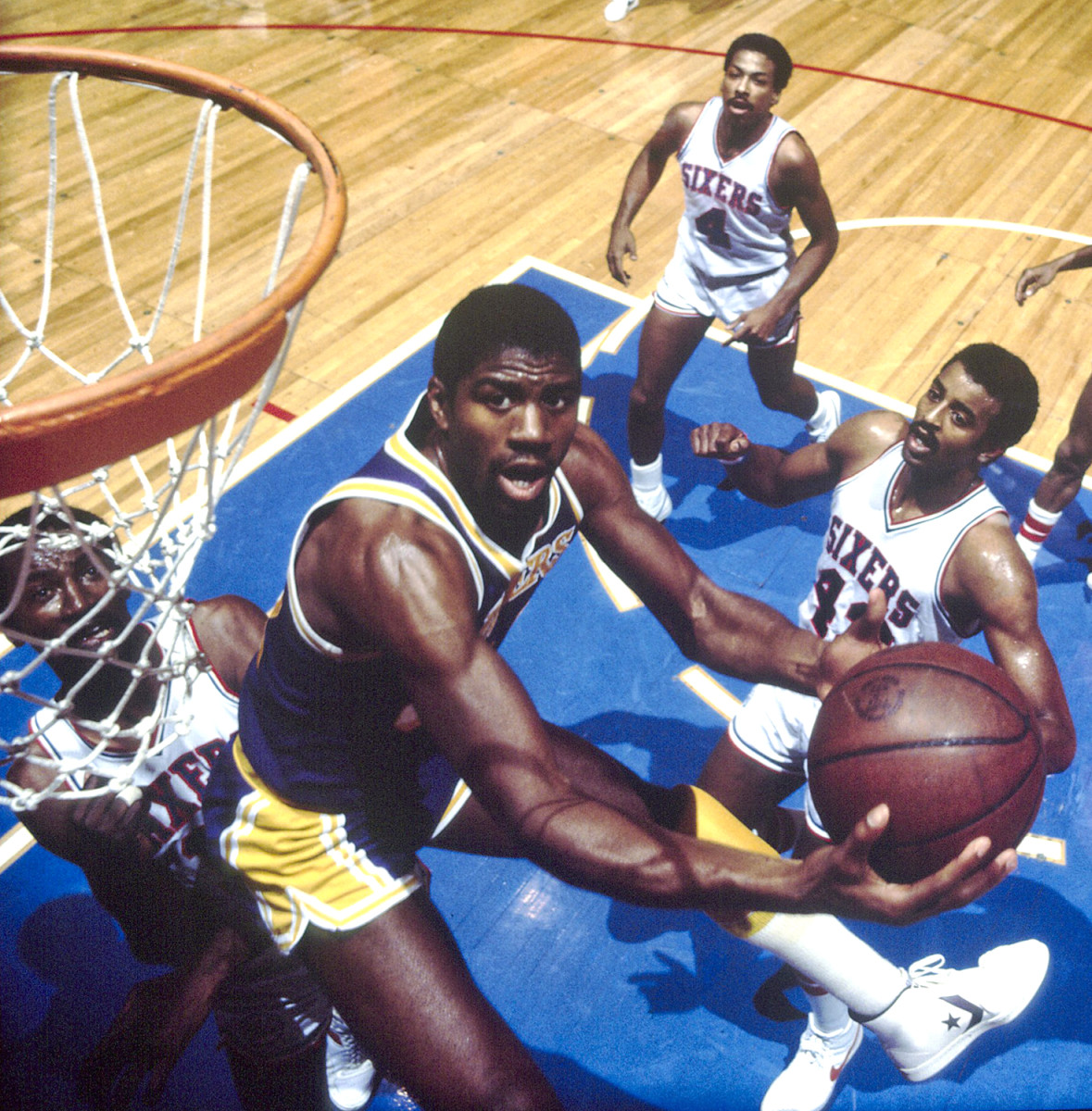
Johnson was the first to ever win the Finals MVP three times and is also the only player in NBA history to win the award as a rookie. The Hall of Fame point guard still holds the record for the most total assists in Finals history, with 584.
Cedric Maxwell (1981)
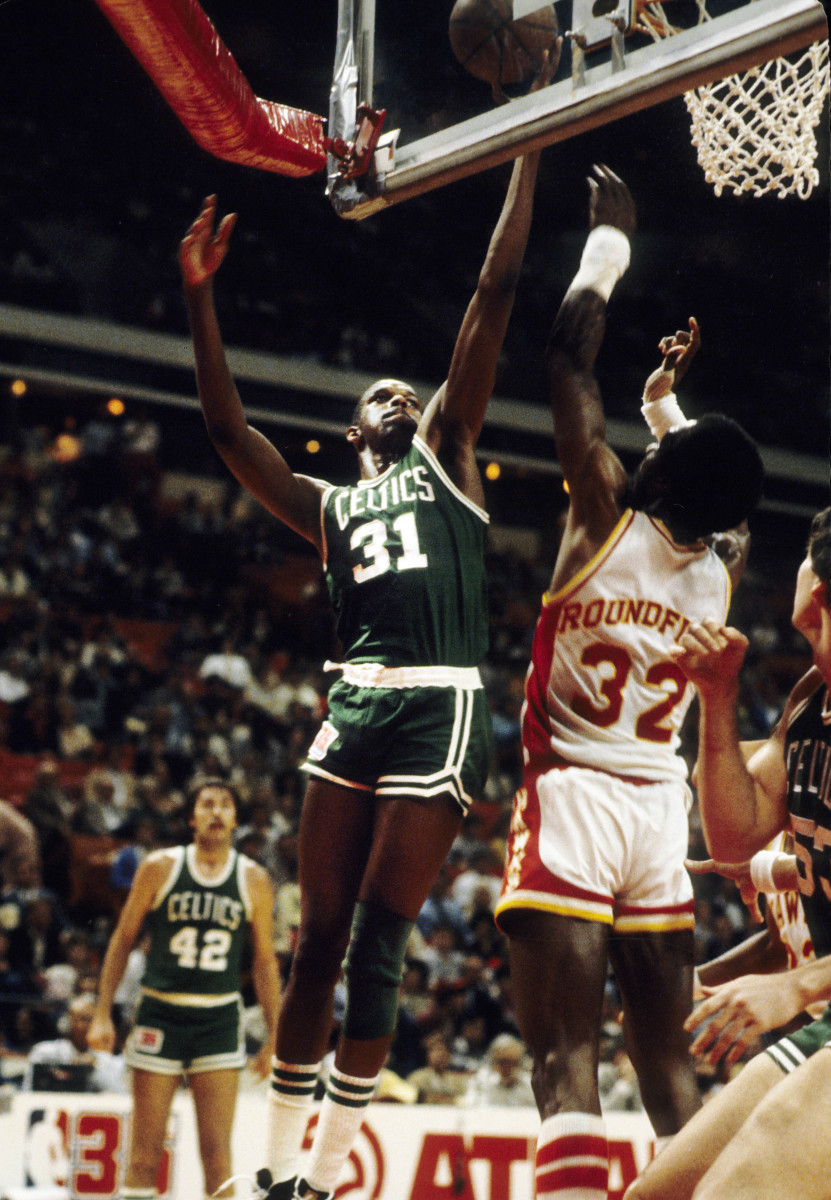
In the 1981 Finals, Maxwell and the Celtics were pitted against the Rockets, a team with a 40–42 regular-season record. Maxwell averaged 22.3 points, 15.7 rebounds and 2.2 blocks in the series, leading all players.
Moses Malone (1983)
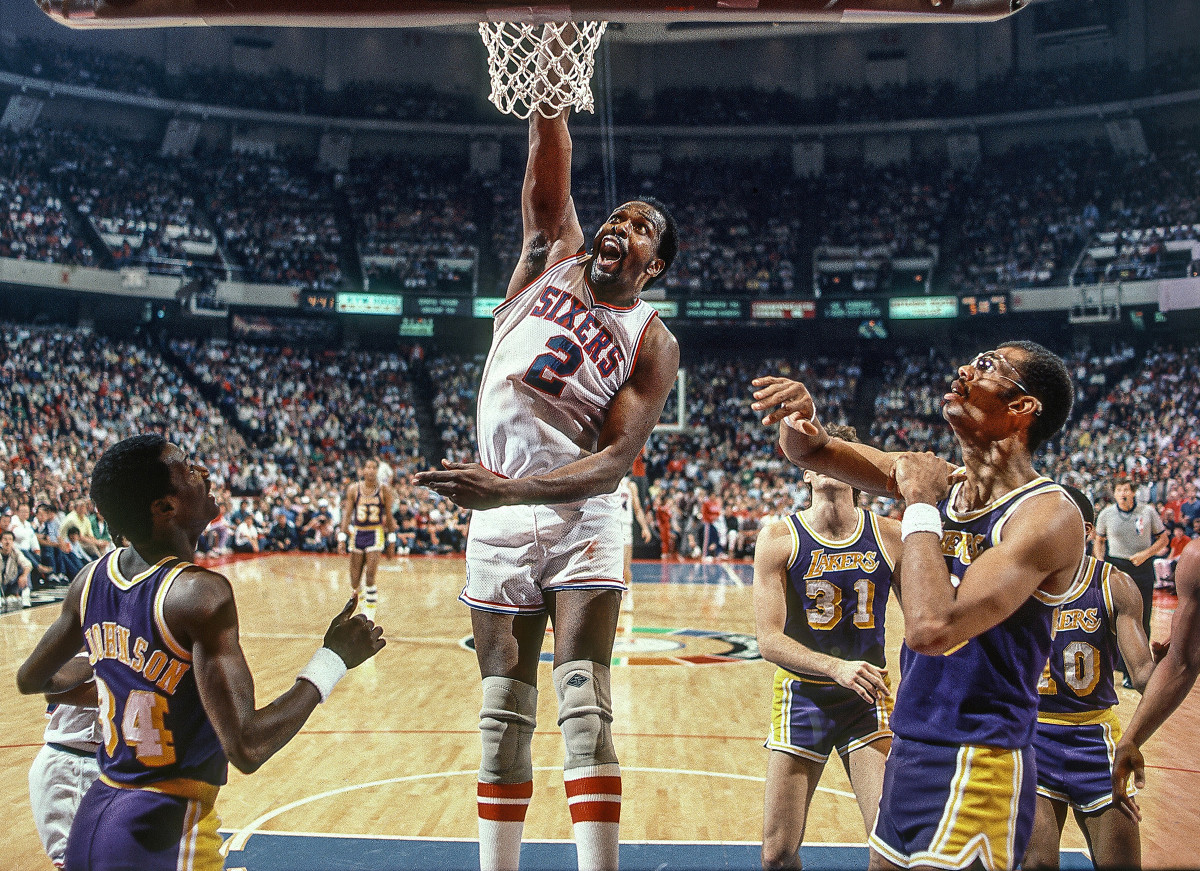
Philadelphia acquired Malone in 1982 to counter the Lakers’ Kareem Abdul-Jabbar, and it paid off. The 76ers swept the Lakers in the ’83 Finals, and Malone, known as “The Chairman of the Boards,” pulled down 23 rebounds in the clinching game.
Larry Bird (1984, 1986)
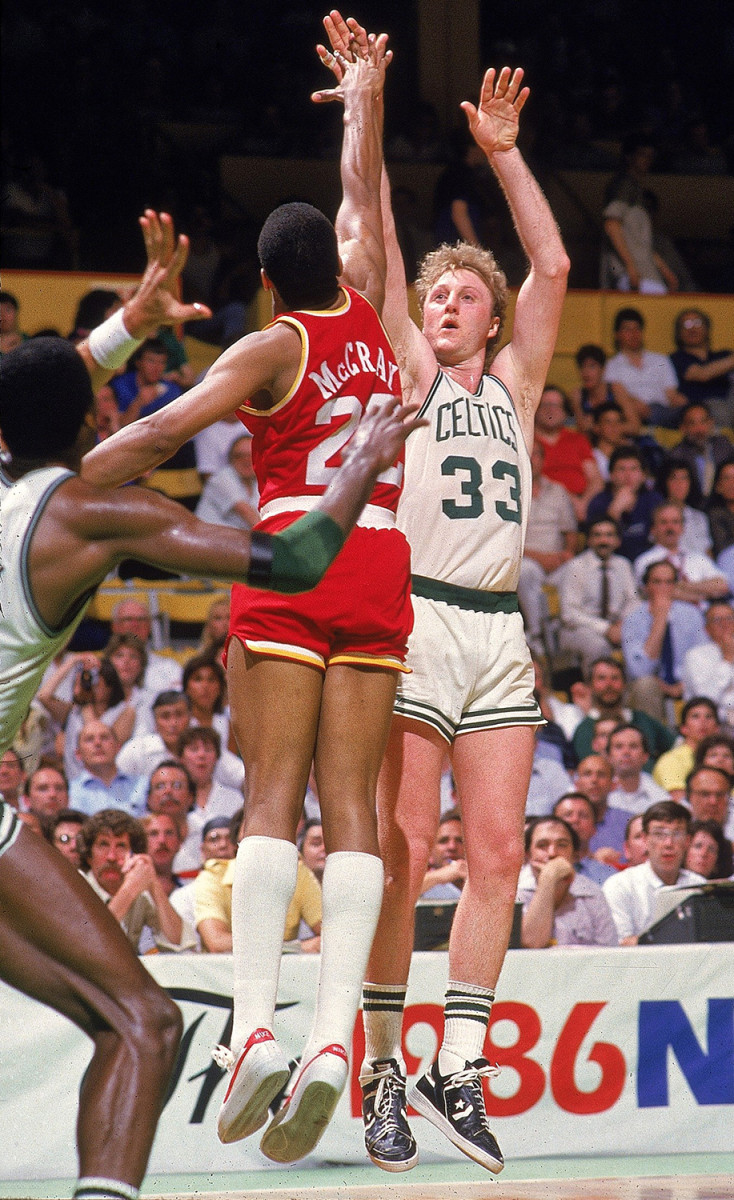
Bird led the Celtics over longtime rival Magic Johnson and the Lakers in a hotly contested seven-game series in ’84, in which he averaged 27.4 points and 14 rebounds per game. He later added a second Finals MVP, nearly averaging a triple double against the Rockets in ’86 to win his third NBA title.
James Worthy (1988)
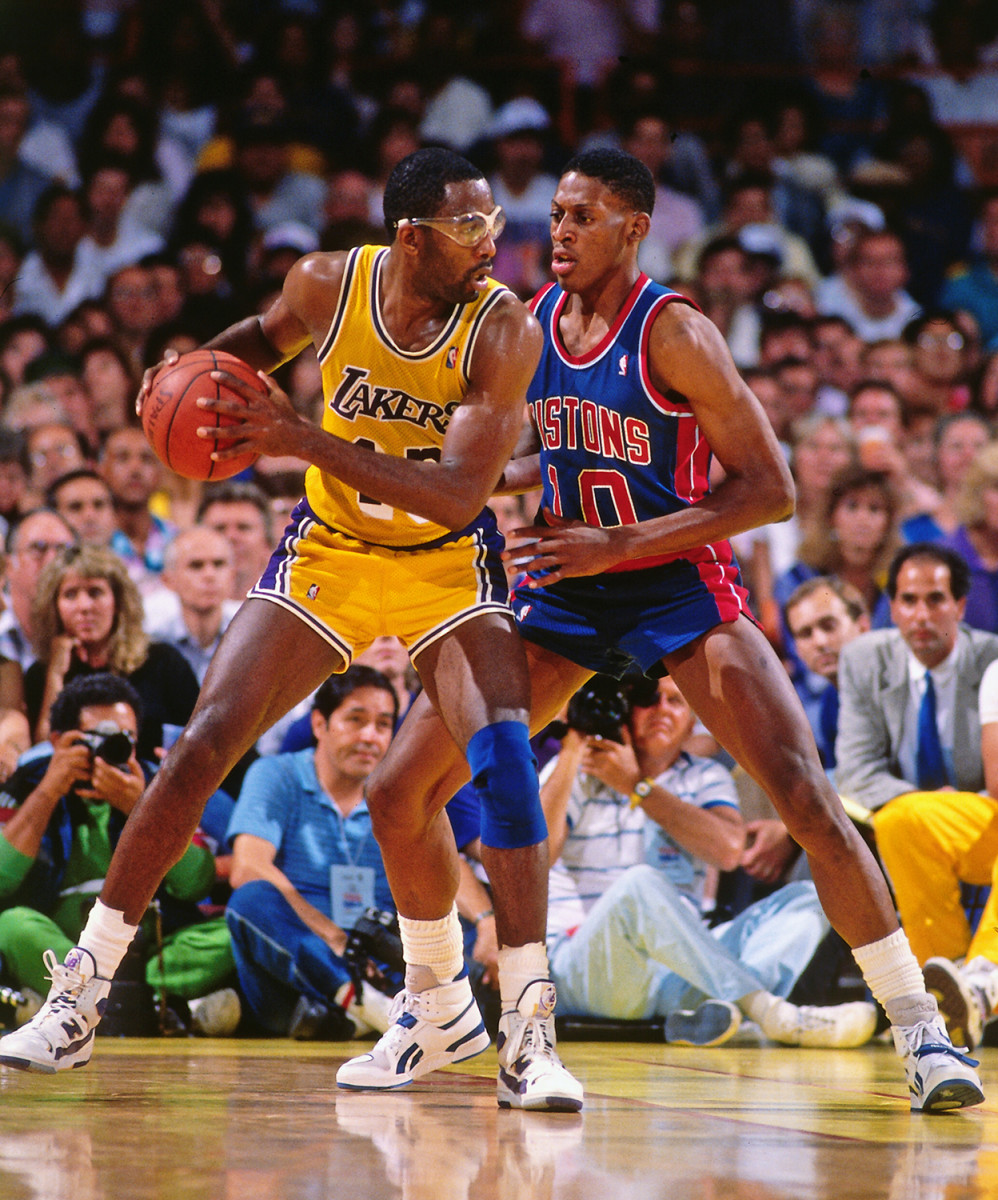
After a back-and-forth series between the Lakers and Pistons that would go to seven games, Worthy racked up a monster triple double: 36 points, 16 rebounds and 10 assists, the only triple double of his career, earning him the nickname Big Game James.
Joe Dumars (1989)
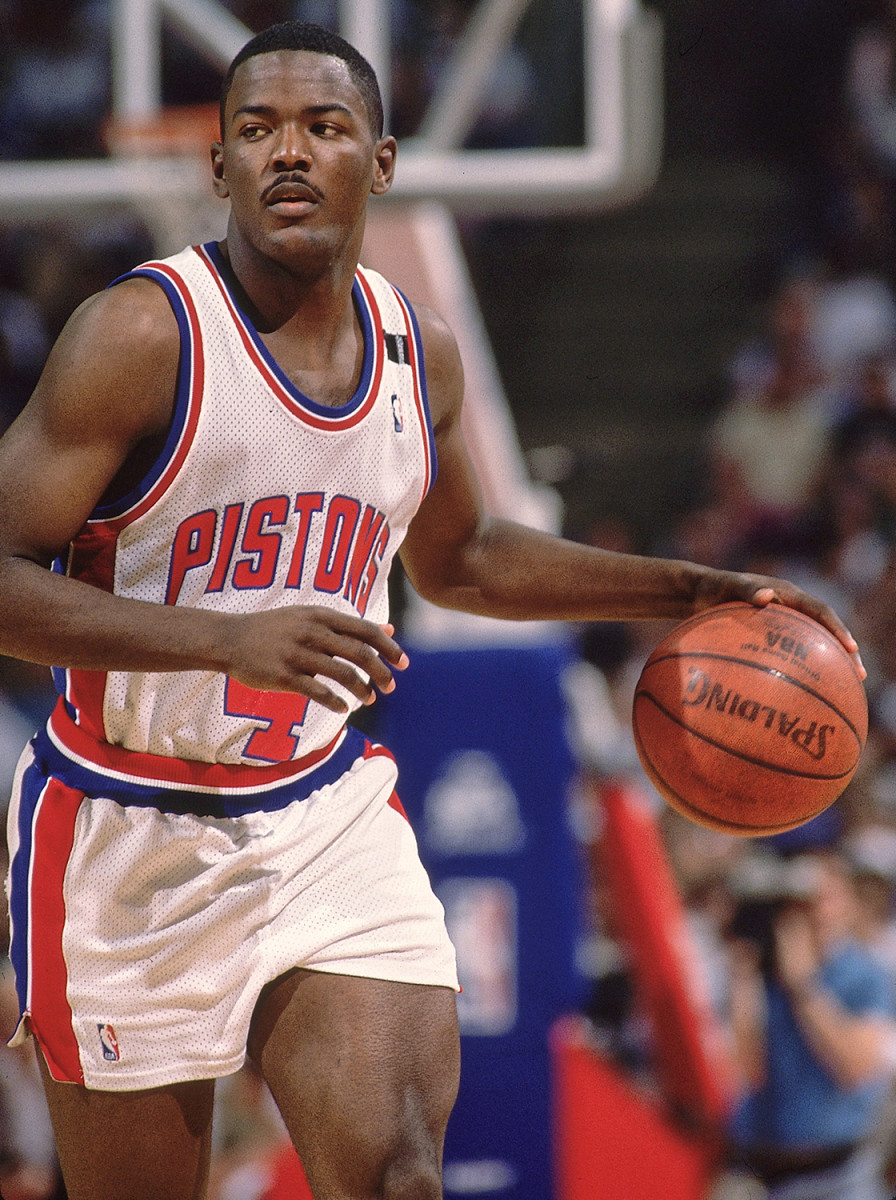
In a rematch of the 1988 Finals, Detroit made quick work of Los Angeles, sweeping the Lakers in four games. Dumars averaged 27.3 points per game to lead the Pistons and spoil Kareem Abdul-Jabbar’s retirement tour.
Isiah Thomas (1990)
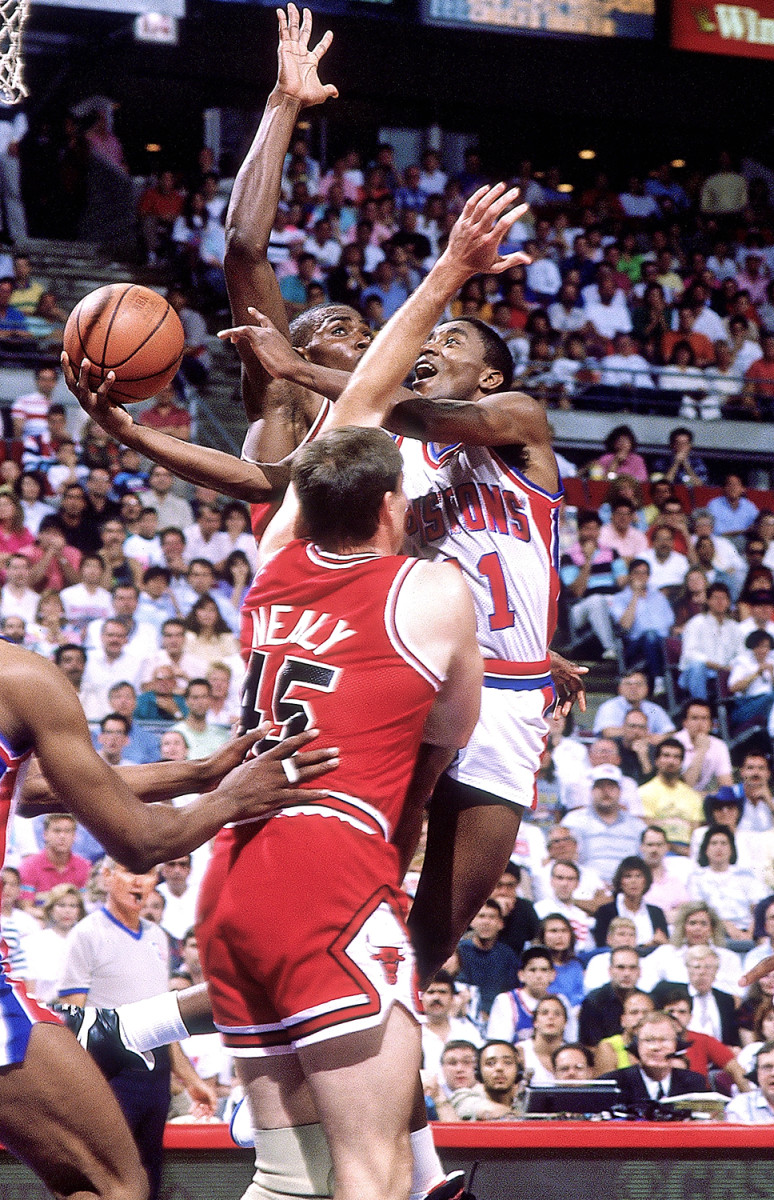
Thomas and the Pistons defeated the Trail Blazers to claim their second title in as many years. Thomas averaged 27.6 points and seven assists per game.
Michael Jordan (1991, 1992, 1993, 1996, 1997, 1998)
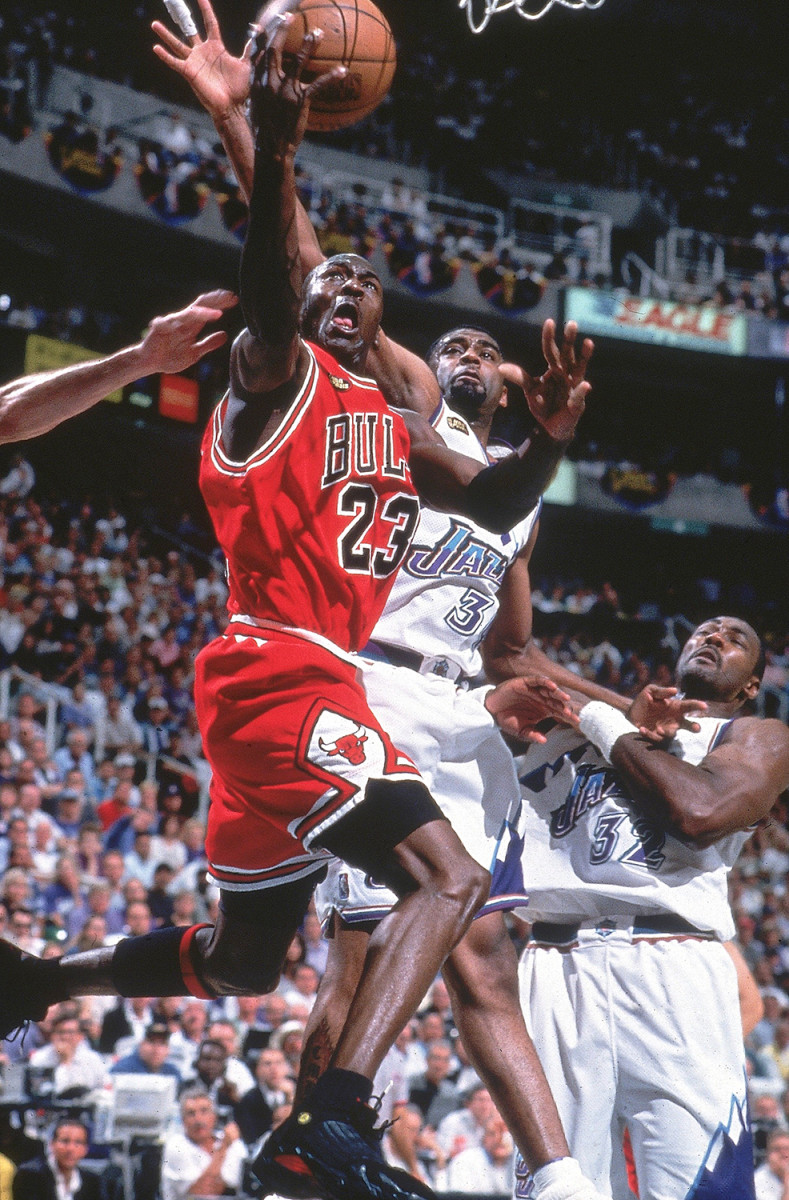
Michael Jordan won a record six Finals MVPs for the Bulls, while never losing a championship series. He never scored under 20 points in a Finals game during his career and owns the highest scoring average in a Finals series (41 PPG in ’93).
Hakeem Olajuwon (1994, 1995)
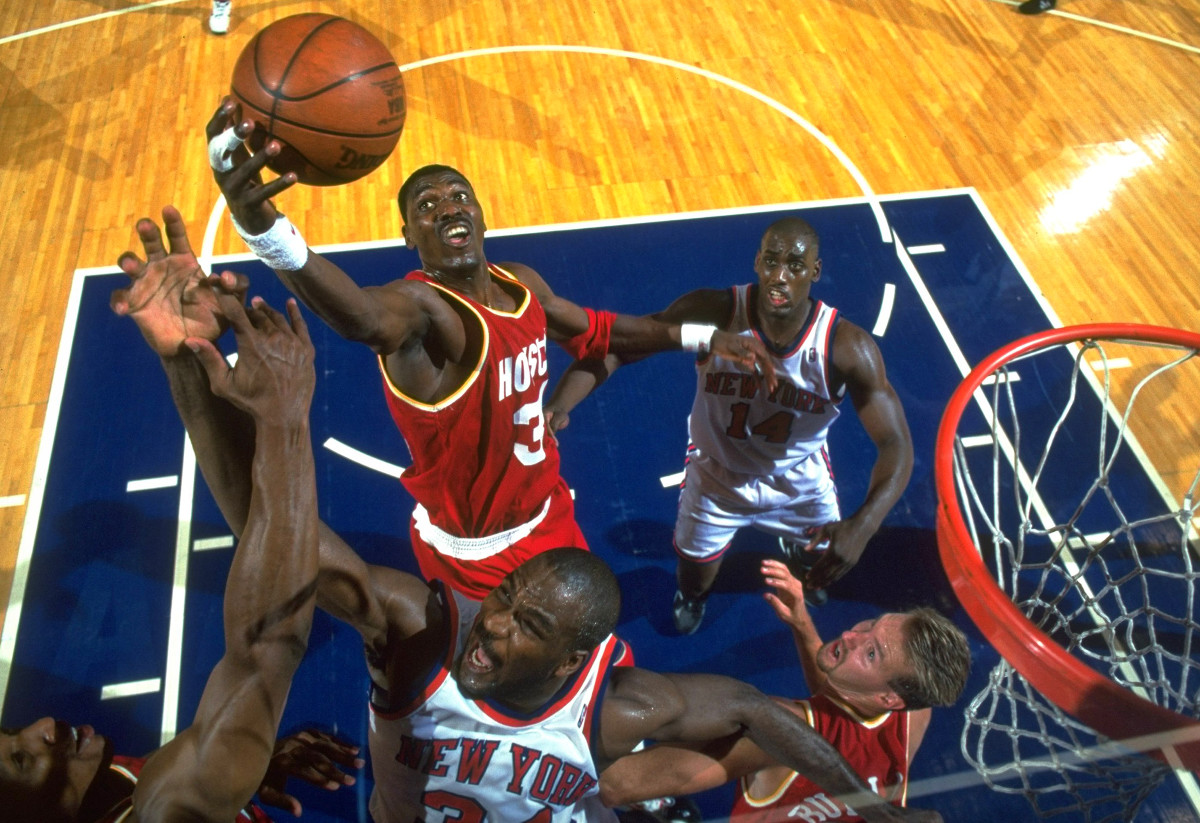
Olajuwon became only the second player ever to win consecutive Finals MVPs, leading the Rockets to their only championships with a win over the Knicks in seven games and a sweep of the Magic the following year.
Tim Duncan (1999, 2003, 2005)
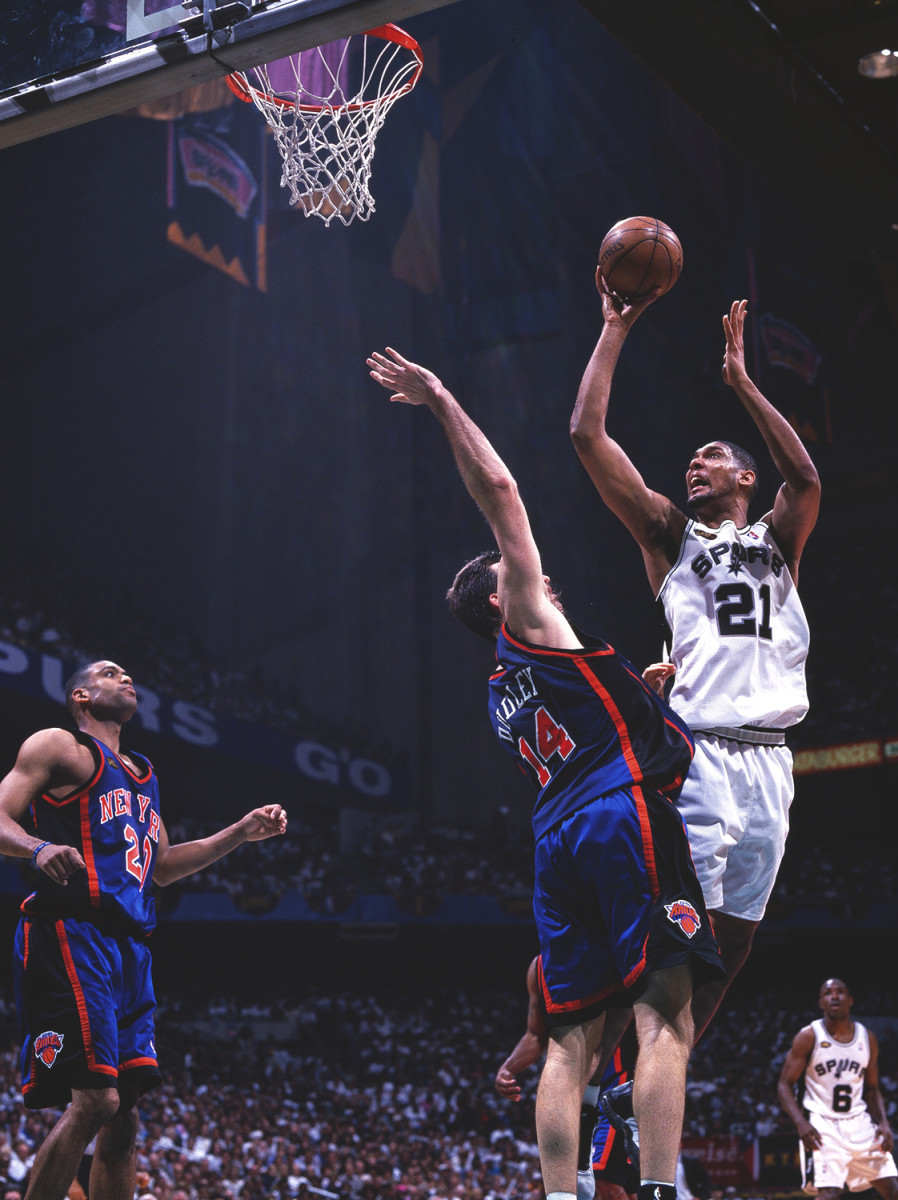
Duncan holds the record for most Finals MVPs by a power forward in NBA history with three. The Spurs’ big man led each of those series in total points and rebounds.
Shaquille O’Neal (2000, 2001, 2002)
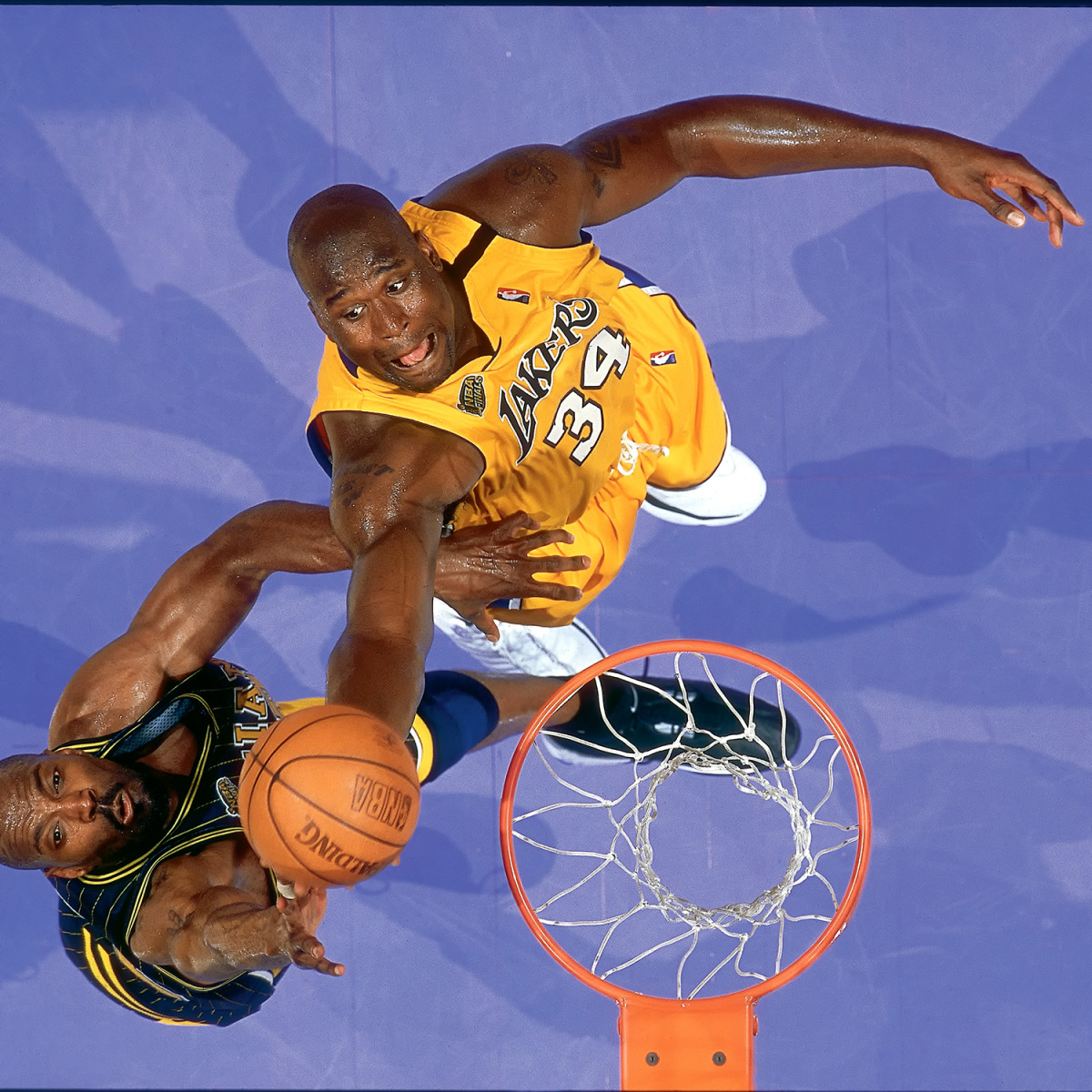
O’Neal led the Lakers to only the fourth-ever three-peat and became the second player ever to win three consecutive Finals MVPs. He never averaged less than 30 points and 12 rebounds in any of his three Finals MVP runs.
Chauncey Billups (2004)
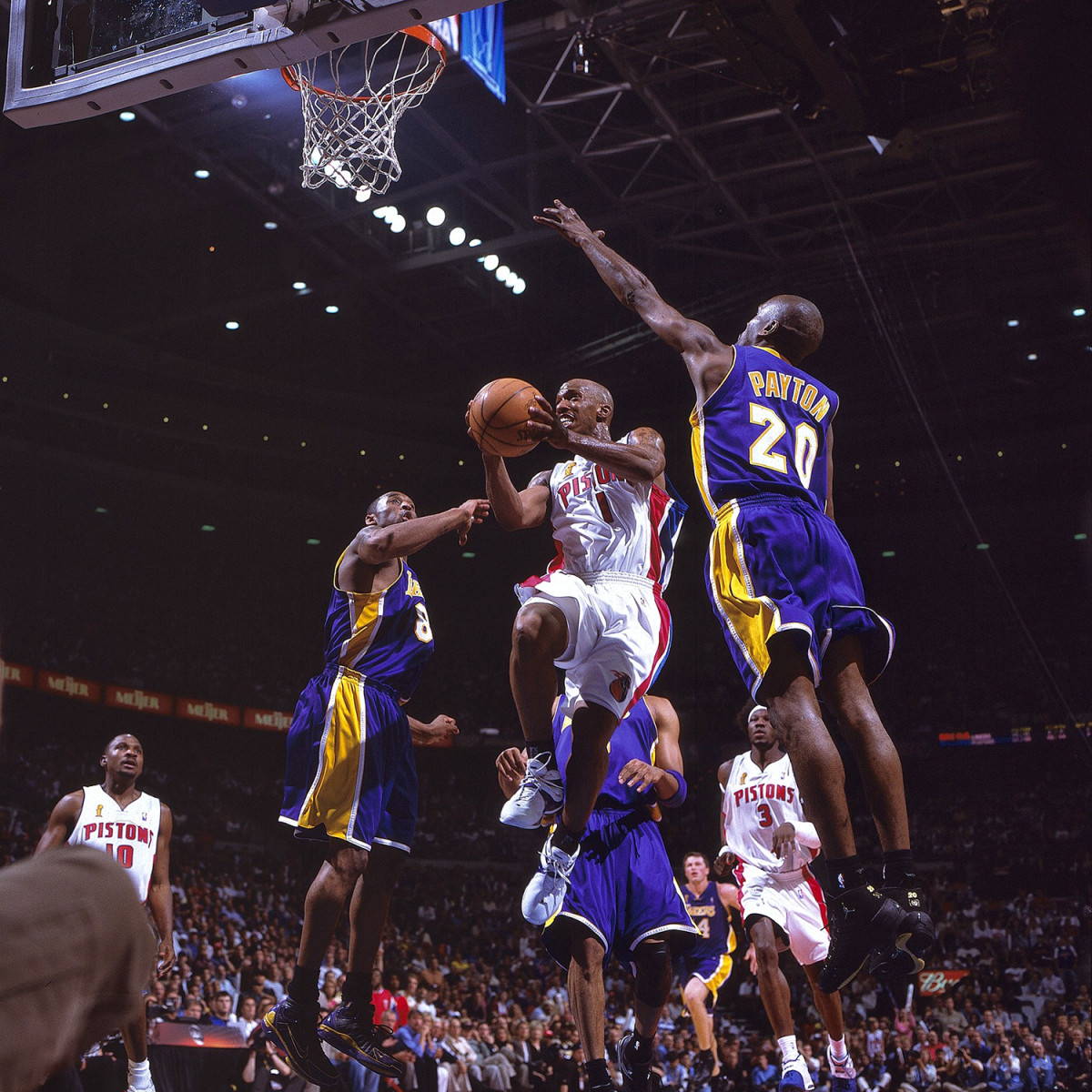
Billups led the Pistons to one of the most improbable upsets in Finals history over the star-studded Lakers in five games. Mr. Big Shot averaged 21 points, 3.2 rebounds and 5.2 assists.
Dwyane Wade (2006)
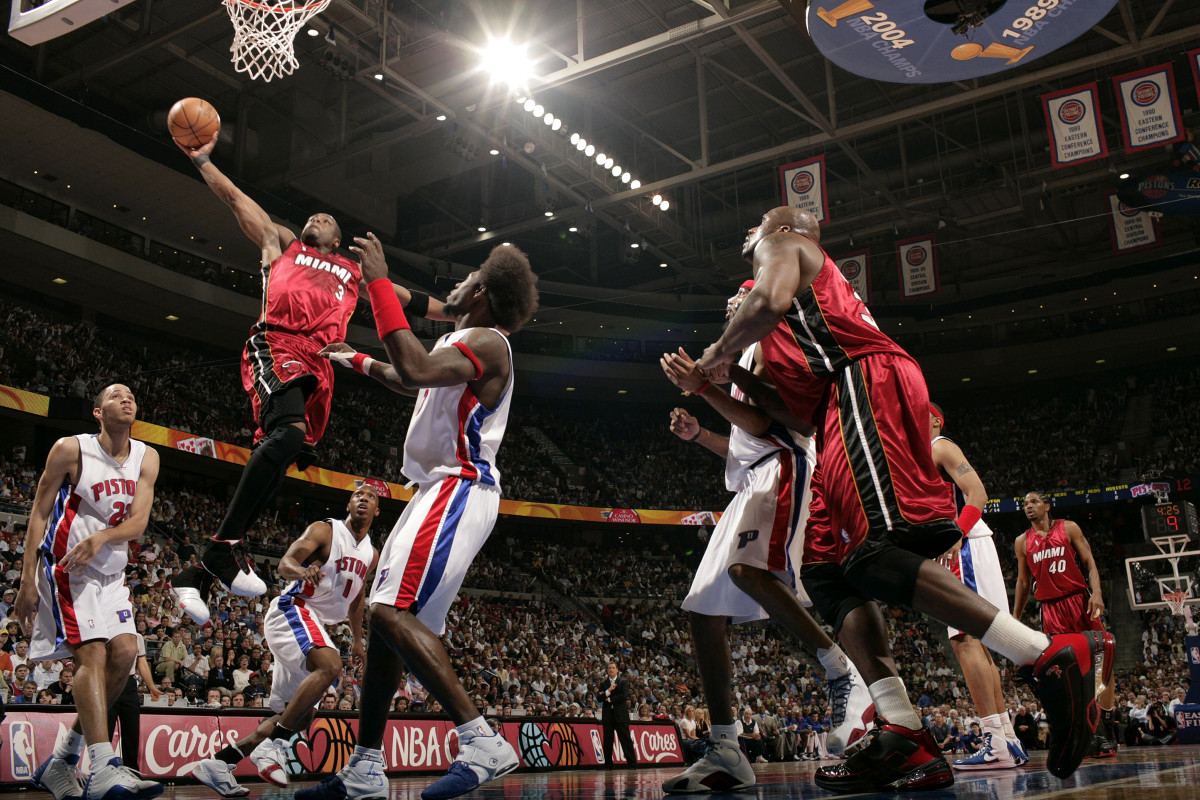
Wade led Miami to its first-ever championship in six games over Dallas, averaging 34.7 points, 7.8 rebounds and 3.8 assists. He also broke the record for most free throw attempts in a single Finals series with 97, a record that stands today.
Tony Parker (2007)
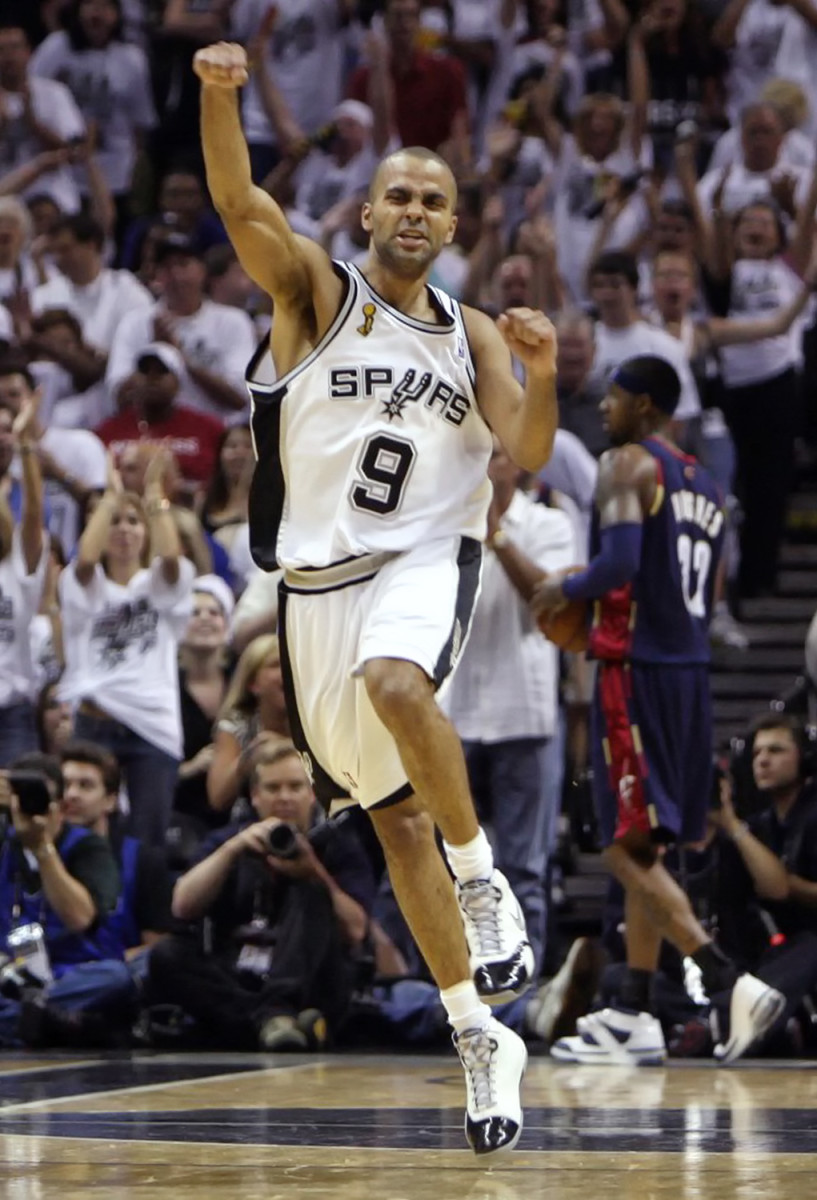
The first European winner of the award took home his third ring after averaging 24.5 points per game against the Cavaliers—at the time the most points he’d scored per game in any playoff series.
Paul Pierce (2008)
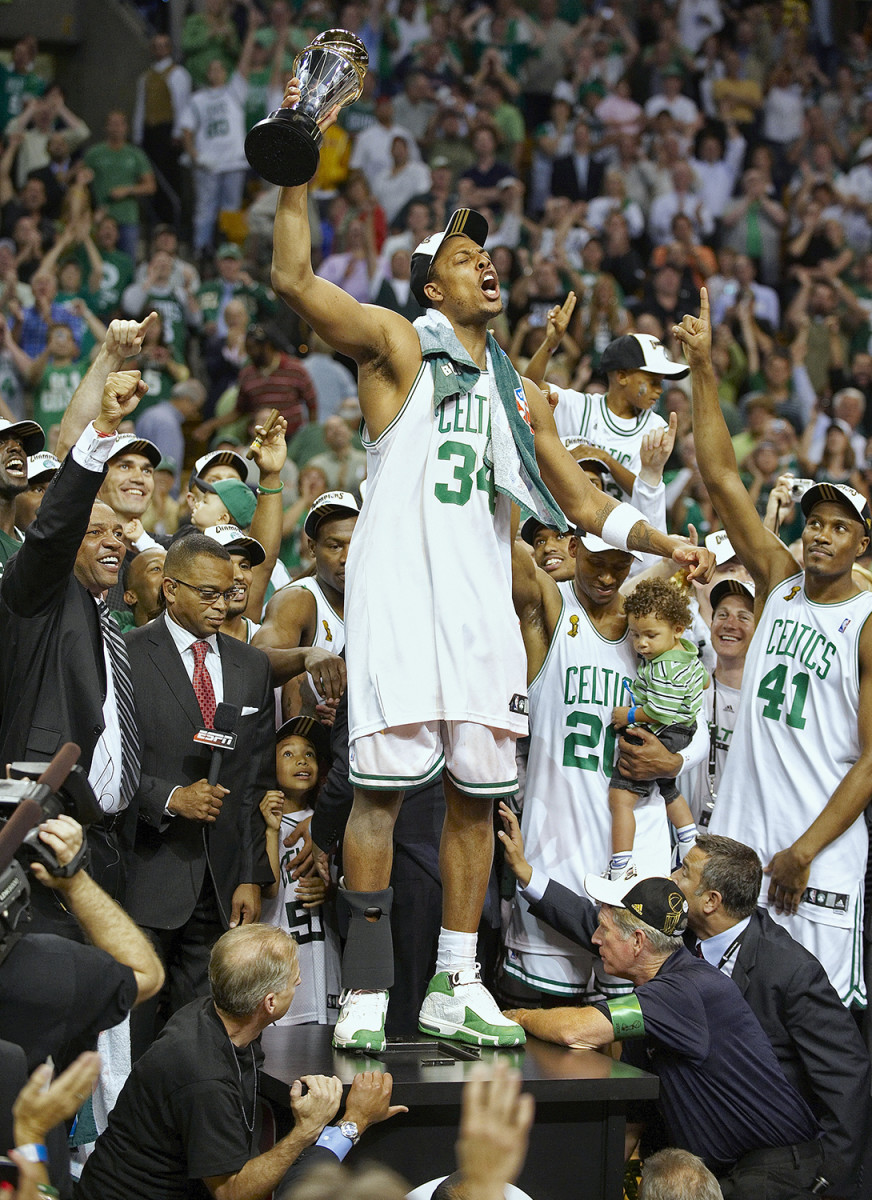
Together with Ray Allen and Kevin Garnett, Pierce helped Boston execute the largest year-over-year turnaround in NBA history. He finished the job with 21.8 points per game in the Finals to secure the Celtics’ 17th championship.
Kobe Bryant (2009, 2010)
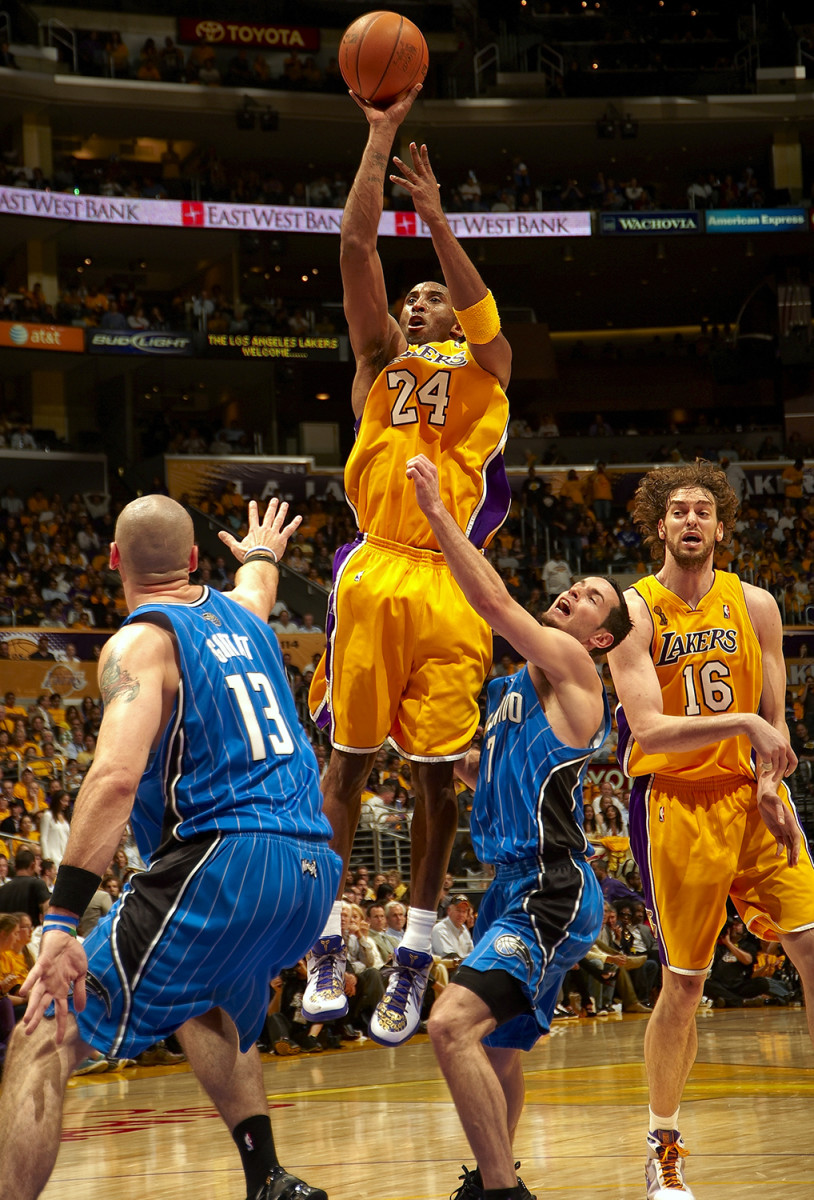
A pair of brilliant Finals performances against Orlando and Boston helped Bryant win the MVPs that eluded him in the early 2000s, when he won three rings playing alongside Shaquille O’Neal.
Dirk Nowitzki (2011)
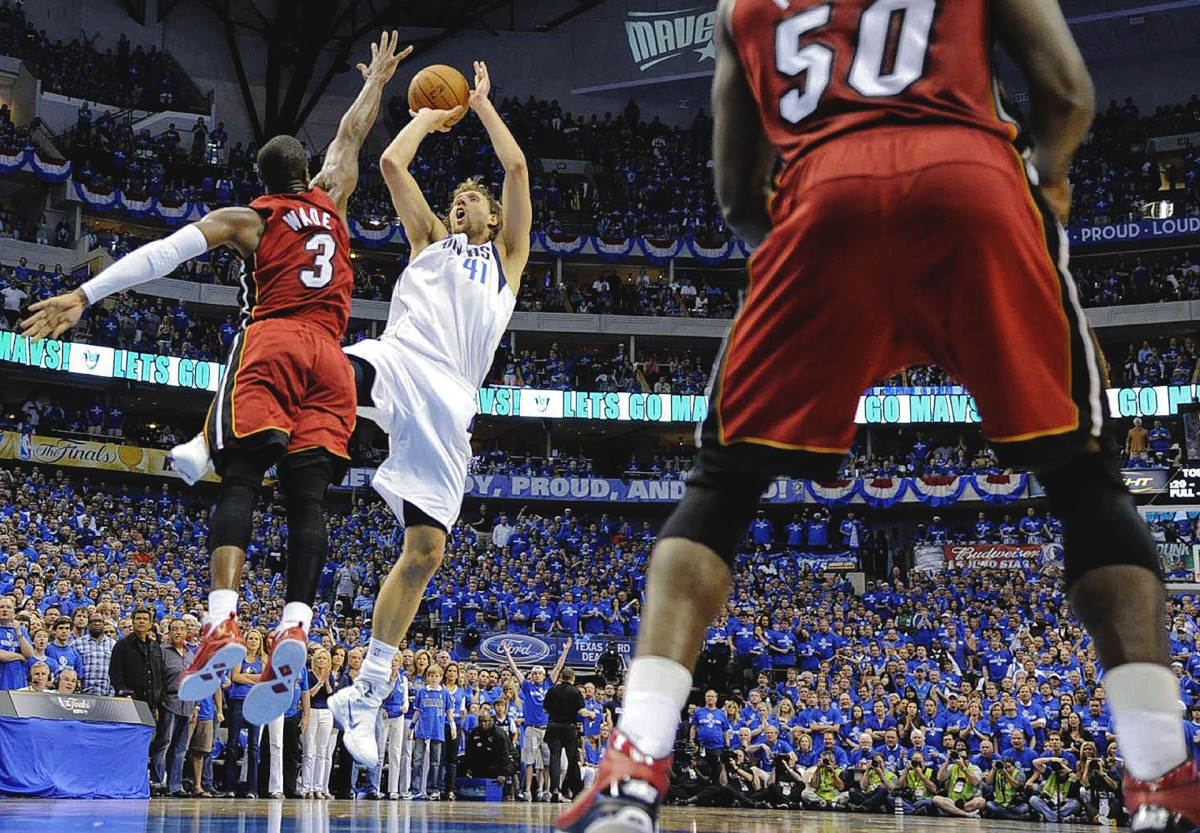
Thirteen years into a Hall of Fame career, Nowitzki finished a postseason for the ages by scoring 26 points per game in the Finals to give Dallas its first title—against the Heat in the first year of the Big Three era.
LeBron James (2012, 2013, 2016, 2020)
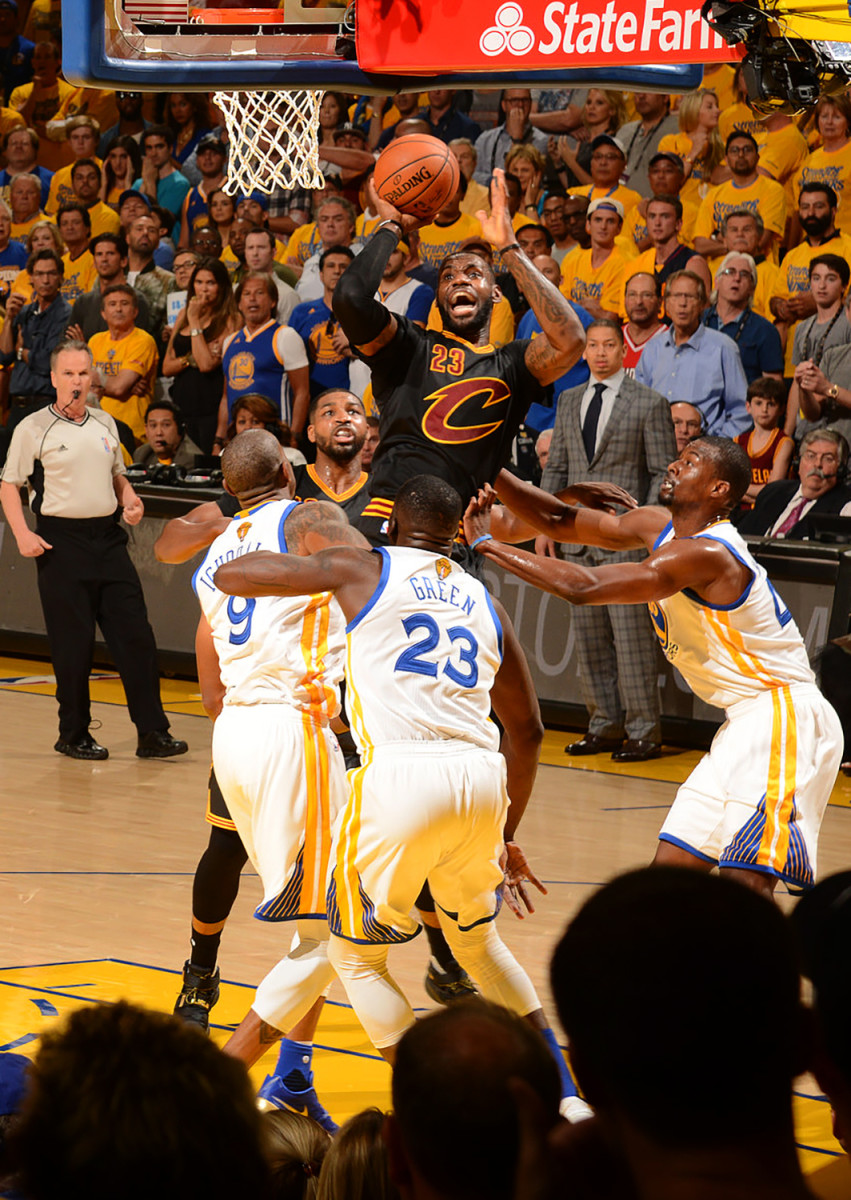
James is the first player to win the award for three different franchises. He won his first two Finals MVPs after he took his talents to Miami. Then, after returning to the Cavs, he became the first player to lead a Finals in points, rebounds, assists, steals and blocks. Finally, James led the Lakers to the title in the NBA bubble, averaging 29.8 points, 11.8 rebounds and 8.5 assists.
Kawhi Leonard (2014, 2019)
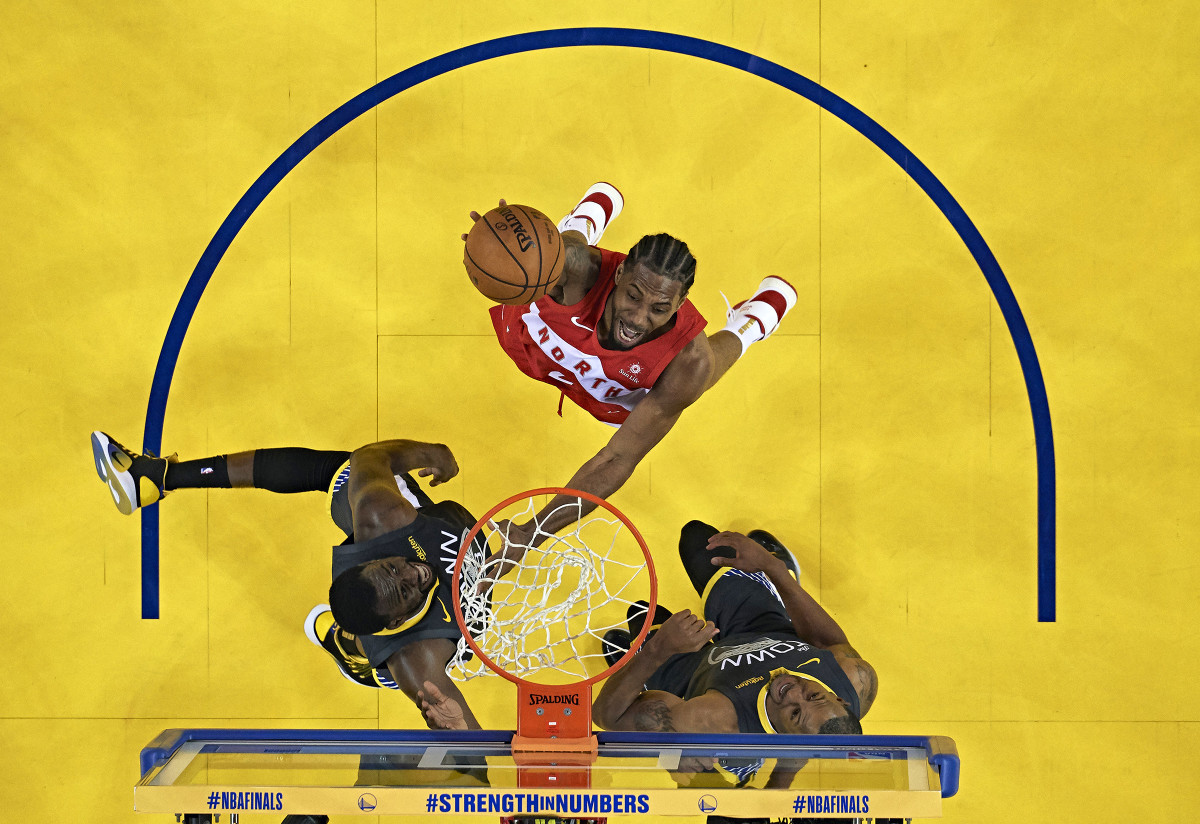
Leonard anchored San Antonio’s most recent title in 2014 with a virtuoso two-way performance. Five years later, he helped the Raptors reach the summit for the first time—and prevented the Warriors from a three-peat—during his one season in Toronto.
Andre Iguodala (2015)
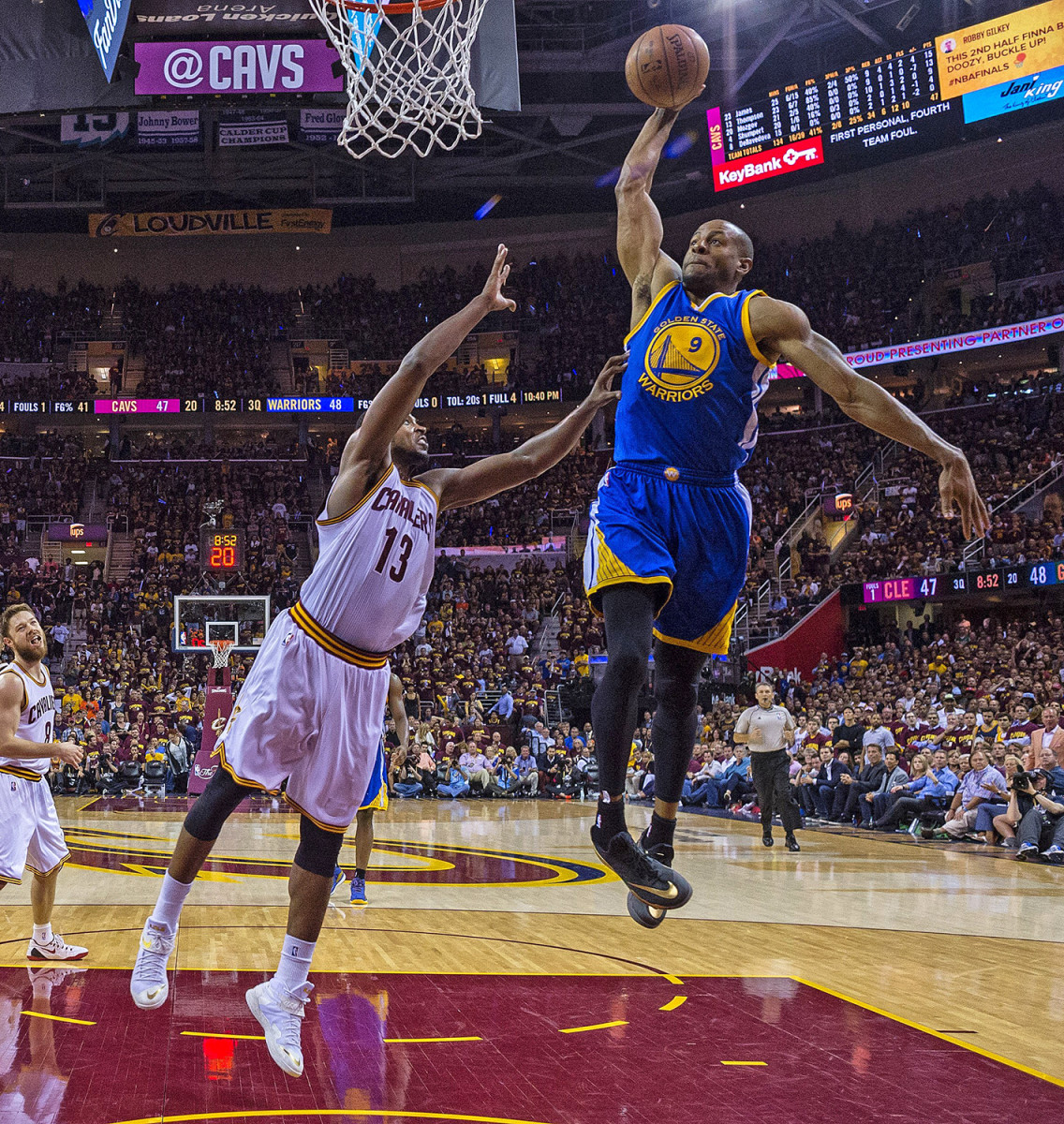
After Cleveland took a 2-1 series lead, Iguodala helped slow down LeBron James and added 16.3 points per game in Golden State’s first NBA Finals victory in 40 years.
Kevin Durant (2017, 2018)
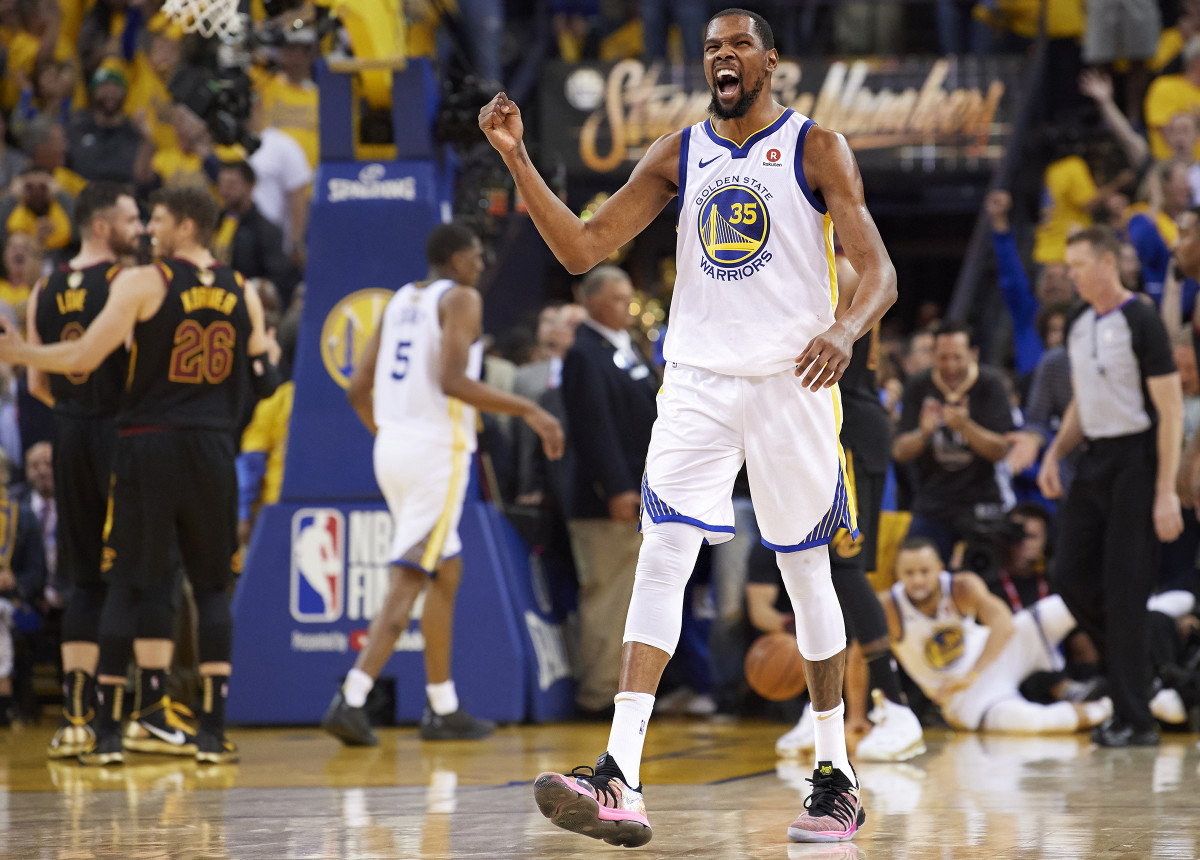
No one was better in 2017 and 2018 than the player who once told SI he was “tired of being second,” as Durant burned the Cavaliers with daggers in Game 3 of both series.
Giannis Antetokounmpo (2021)
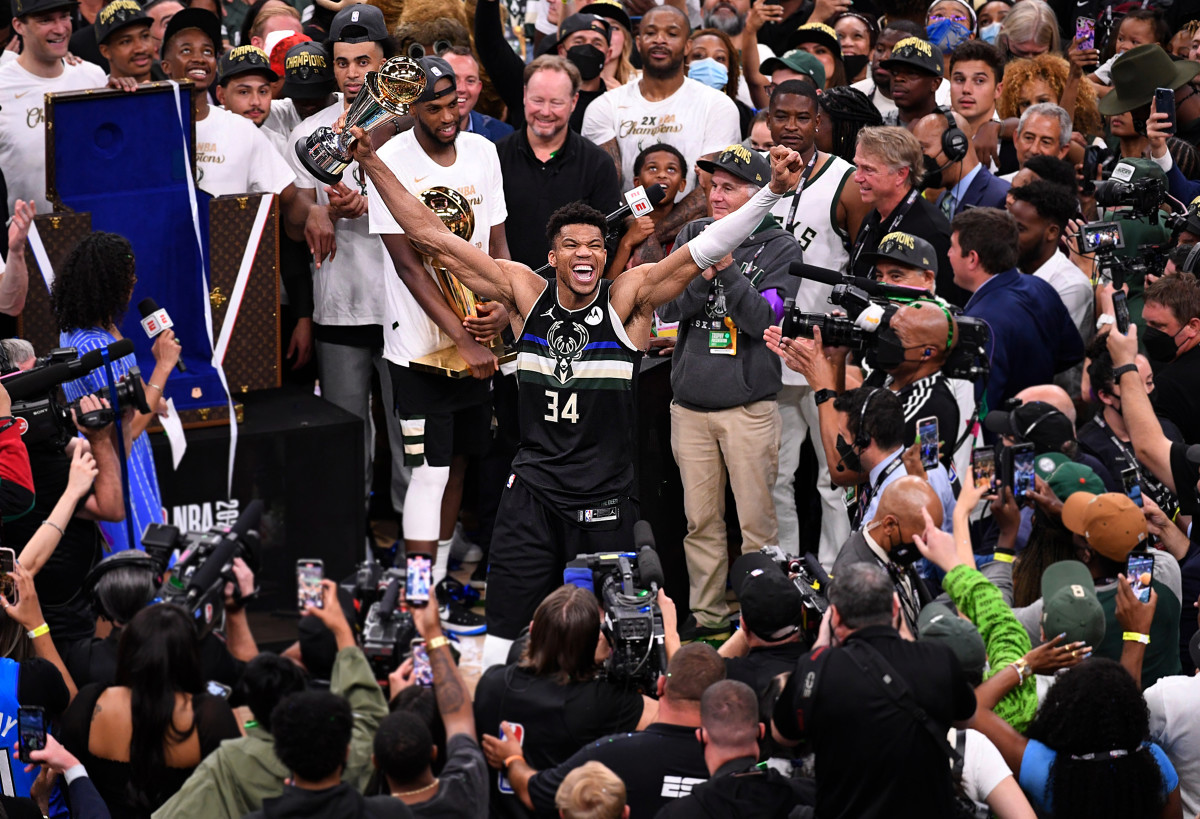
Despite staring down a 2-0 hole to open the series, Antetokounmpo led Milwaukee to its first NBA title since 1971—capped by a transcendent 50-point, 14-rebound performance in Game 6.
Stephen Curry (2022)
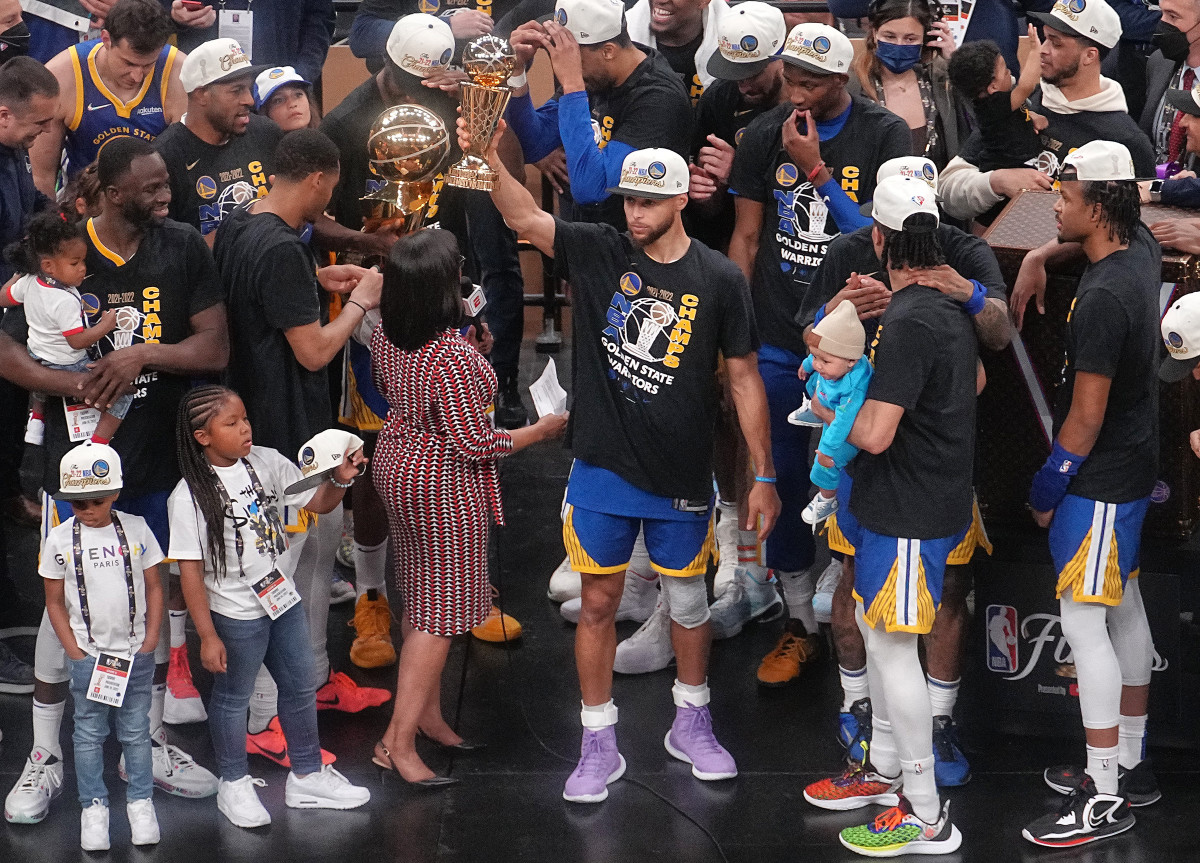
The fourth time was the charm for Curry, who finally won his first Finals MVP after leading the Warriors past the Celtics in six games. Curry averaged 31.2 points, 6.0 rebounds and 5.0 assists, while shooting 41.8 percent from three.
